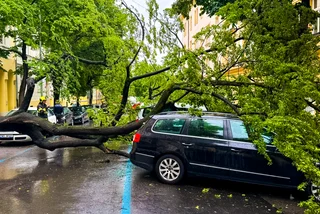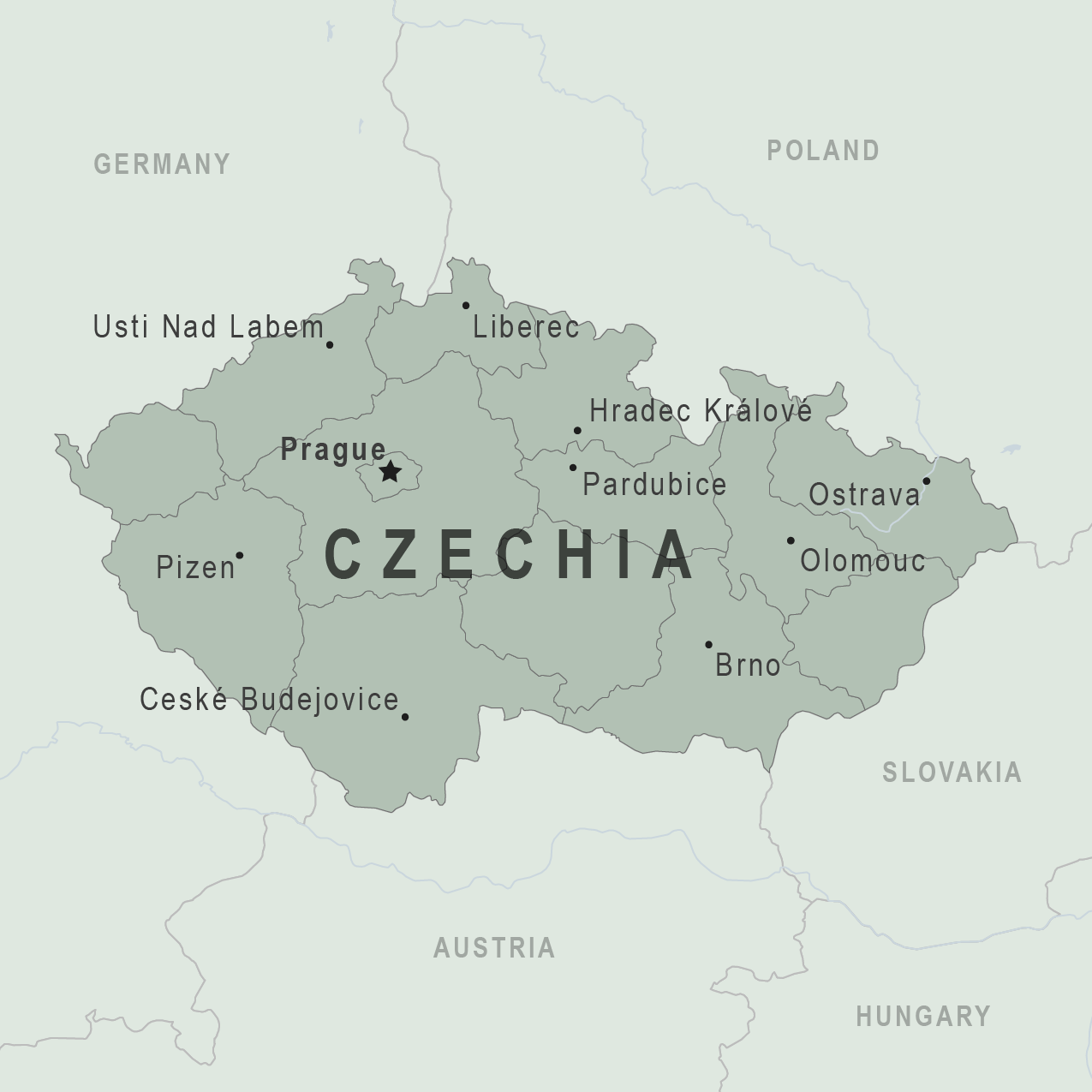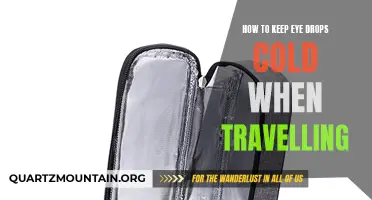Czech Republic Travel Restrictions
Traveler's COVID-19 vaccination status

Traveling from the United States to the Czech Republic
Open for vaccinated visitors
COVID-19 testing
Not required
Not required for vaccinated visitors
Restaurants
Not required in public spaces, enclosed environments and public transportation.
Czech Republic entry details and exceptions
Ready to travel, find flights to the czech republic, find stays in the czech republic, explore more countries on travel restrictions map, destinations you can travel to now, dominican republic, netherlands, philippines, puerto rico, switzerland, united arab emirates, united kingdom, know when to go.
Sign up for email alerts as countries begin to open - choose the destinations you're interested in so you're in the know.
Can I travel to the Czech Republic from the United States?
Most visitors from the United States, regardless of vaccination status, can enter the Czech Republic.
Can I travel to the Czech Republic if I am vaccinated?
Fully vaccinated visitors from the United States can enter the Czech Republic without restrictions.
Can I travel to the Czech Republic without being vaccinated?
Unvaccinated visitors from the United States can enter the Czech Republic without restrictions.
Do I need a COVID test to enter the Czech Republic?
Visitors from the United States are not required to present a negative COVID-19 PCR test or antigen result upon entering the Czech Republic.
Can I travel to the Czech Republic without quarantine?
Travelers from the United States are not required to quarantine.
Do I need to wear a mask in the Czech Republic?
Mask usage in the Czech Republic is not required in public spaces, enclosed environments and public transportation.
Are the restaurants and bars open in the Czech Republic?
Restaurants in the Czech Republic are open. Bars in the Czech Republic are .
- Real Estate
- Prague Guide
- Food & Drink
Coronavirus update, Aug. 24, 2021: Fully vaccinated American tourists can come to the Czech Republic
Plus: epidemic expected to grow in the autumn, preventive coronavirus tests to remain free, r number stays under 1.0 for third day..

Fully vaccinated Americans can come for tourism
Fully vaccinated Americans can enter the Czech Republic for non-essential travel including tourism if they have a vaccination card from the CDC. They must be 14 days after the final dose. The U.S. Embassy and Czech Interior Ministry clarified the situation after initial confusion on Monday. The Czech Interior Ministry has an example of what the CDC card looks like. People must have been vaccinated with one of the four approved vaccines. The US Embassy on its website states: “If vaccinated, only a Personal Locator Form (PLF) and negative COVID test within 72 hours of travel are required. If unvaccinated, travelers are subject to pre-arrival and post-arrival COVID testing, as well as self-isolation until receipt of a negative test.” More details on travel rules are on the Health Ministry website .

Epidemic to grow in autumn, but won’t burden hospitals
The coronavirus epidemic will start growing in the country when people return to work and children to schools after the summer holidays, but the development should not be as dramatic as last year, Institute of Health Information and Statistics (ÚZIS) head Ladislav Dušek told ČTK and Czech Television.
"The return of a big mass of people into ordinary life will unavoidably lead to growing infections," he said.
Dušek said even if the high-risk scenario occurred, about 500 coronavirus patients could be treated in Czech hospitals in late September, including a hundred at intensive care units. Dušek said the autumn risk is that some 440,000 people aged over 60 have neither been vaccinated nor recovered from the infection disease, and that the percentage of the young population that is vaccinated is not high enough. He said a rather serious course of the disease can be expected in the case of 50 to 60 percent of these people in their 60s or older.

Coronavirus update, Aug. 23, 2021: Zeman supports mandatory vaccination if there's a new Covid wave
Preventive coronavirus tests to remain free
The Czech cabinet decided that preventive coronavirus tests will continue to be free for everybody, although people aged over 18 originally were to pay for them as of September, Health Minister Adam Vojtěch said. He said the decision was made because of the unfavorable epidemic development in some European countries, adding that the plan that coronavirus testing should not be covered from the public health insurance system anymore wanted to motivate the citizens to get vaccinated. But he said one cannot ignore the situation in Europe. See our full story here .
AGENCY PROPERTIES

Apartment for rent, 2+kk - 1 bedroom, 58m 2
Tvrdonická, Praha 5 - Zličín

Family house for rent, 162m 2 , 495m 2 of land
Půlkruhová, Praha 6 - Vokovice

Apartment for rent, Flatshare, 12m 2
Dominikánské náměstí, Brno - Brno-město

Apartment for rent, 1+KK - Studio, 38m 2
Sokolova, Praha 8 - Karlín

Ministry of Health: Preventive Covid tests to remain free in the Czech Republic
Renewed testing in companies not expected
Health Minister Adam Vojtěch said that the government does not yet expect the renewal of mandatory regular Covid testing in companies, which was the case in the spring. According to Vojtěch, it would make sense if the so-called incidence number, which indicates the weekly number of newly infected per 100,000 inhabitants, was above 75. Now, for the third day in a row, it remains below 12, though in some regions it is higher and in Prague it is 27. However, according to Vojtěch, the situation is dynamic and the end of September may be different.
Delivery of Covid sests for schools starting
Firefighters will begin delivering 4.2 million antigen tests to municipalities for three waves of testing in schools in early September. Schools can also test pupils with PCR tests, but they must arrange these themselves, and some 200 schools have taken this option Three waves of testing await schoolchildren on Sept. 1, 6, and 9. First-graders will be tested instead of the first day of school until Sept.2. Using a more accurate PCR method, pupils in schools will only be able to test once a week at the beginning of September, passing two tests. Children will also be able to be tested at an official test site and then provide proof of a test.
R number stays under 1.0 for third day
There were 206 new cases of Covid reported for Monday, down from 213 the previous week. The number of hospitalized people rose by one to 58 and serious cases rose be one to 10. No new deaths were reported for the third day in a row, and the revised toll for the month is at 17. The incidence number of new cases per 100,000 remains at 12. The reproduction number R rose slightly to 0.97, and is under the break-even point of 1.0 for the third day. For Prague, the incidence number is 27, down from 28 on the previous day. The R number is at 0.96.

Latest Covid-19 data from the Czech Ministry of Health (Aug. 24, 2021)
- New cases 206
- Deaths 30,385
- Currently hospitalized 58
- PCR tests performed 9,817,667
- Antigen tests performed 25,546,214
- Total vaccinations 11,261,988
- Daily increase in vaccinations 45,095
- People who have completed vaccination 5,562,724
- New cases per 100,000 in seven days 12
- PES index 35
- R number 0.97
Source: onemocneni-aktualne.mzcr.cz/covid-19

By submitting this form you agree to our Terms of Service & Privacy Policy
Other daily news

On Kafka's death anniversary a new exhibit opens in Prague's largest synagogue

Flooding, falling trees, and lightning cause chaos in Czechia – further storms expected

Czech news in brief for June 3: Monday's top headlines

Ahoj, Monday! 5 things you need to know this week in Czechia

Czech dance festival Tanec Praha kicks off diverse 2024 program

Czech students complete card game recovered from WWII Terezín ghetto

Partner articles

In the Czech kitchen: Mini buns with vanilla custard are a childhood favorite

Investing top tips: Who’s really advising you?

What is health insurance for foreigners and who needs it?

Prague artisans celebrate modern love with silver and gold wedding flowers

The Grandhotel Pupp: Stay at one of Czechia's most iconic five-star hotels

The Julius Prague: Treat yourself to a stylish staycation with gourmet appeal
Featured jobs, technical solutions associate.
Sponsored Content Writer/Brand Journalist
Talent sourcer (12-months ftc), trending articles.

Czechia is embracing the euro: Here's how you can benefit

Discover prime mushroom-picking spots across Czechia with a new map

Sparta gets green light for new stadium on site of Prague's dilapidated Strahov

Prague City Hall's paternoster elevator reopens as a guided tourist attraction

Czech choreographer not headed into space as moon mission is grounded

Czechia tops Switzerland 2-0 to win 2024 Ice Hockey World Championships
Popular articles.

You may be able to see the northern lights from Czechia this weekend

Czech Republic witnesses spectacular display of northern lights

Czechia to remove need for work permit for citizens of seven non-EU countries

Bloomberg: Living standards in Czechia will soon surpass Spain, Italy
© 2001 - 2024 Howlings s.r.o. All rights reserved. Expats.cz, Vítkova 244/8, Praha 8, 186 00 Czech Republic. IČO: 27572102, DIČ: CZ27572102
Drobečková navigace
Home Page / About Us / News / COVID19
Certificate and confirmation form for entry into the Czech Republic
Older types of certificates or confirmations that were validated by the responsible authority are still valid.
Model national certificates of vaccination against COVID-19
- https://koronavirus.mzcr.cz/certifikaty/
Medical certificate on suffering covid-19 disease in the past
- Medical certificate on suffering COVID-19 disease in the past when travelling to the Czech Republic (CZ / EN) (pdf, 70 kB)
Certificate on SARS-CoV-2 antigen testing result
- Certificate (pdf, 100 kB)
International transport workers:
- Certificate form for international transport workers (CZ / EN) (docx, 85, kB)
Cross-border work performance, pupils and students
- Confirmation form of cross-border work performance (CZ / EN) (docx, 46 kB)
- Confirmation form for cross-border pupils and students (CZ / EN) (docx, 47 kB)
Sworn statement of permanent partnerships and living in common household
- Sworn statement of partnership (czech only) (docx, 17 kB)
Print E-mail X Corp. Facebook
Website of the Police of the Czech Republic Website of the Fire and Rescue Service of the Czech Republic
© 2024 The Ministry of the Interior of the Czech Republic, all rights reserved
- Webmaster |
- Declaration of accessability
Security Alert May 17, 2024
Worldwide caution, update may 10, 2024, information for u.s. citizens in the middle east.
- Travel Advisories |
- Contact Us |
- MyTravelGov |
Find U.S. Embassies & Consulates
Travel.state.gov, congressional liaison, special issuance agency, u.s. passports, international travel, intercountry adoption, international parental child abduction, records and authentications, popular links, travel advisories, mytravelgov, stay connected, legal resources, legal information, info for u.s. law enforcement, replace or certify documents.
Before You Go
Learn About Your Destination
While Abroad
Emergencies
Share this page:
Czech Republic
Travel Advisory July 26, 2023
Czech republic - level 1: exercise normal precautions.
Reissued with obsolete COVID-19 page links removed.
Exercise normal precautions in the Czech Republic.
Read the country information page for additional information on travel to the Czech Republic.
If you decide to travel to the Czech Republic:
- Enroll in the Smart Traveler Enrollment Program ( STEP ) to receive Alerts and make it easier to locate you in an emergency.
- Follow the Department of State on Facebook and Twitter .
- Review the Country Security Report for the Czech Republic.
- Visit the CDC page for the latest Travel Health Information related to your travel.
- Prepare a contingency plan for emergency situations. Review the Traveler’s Checklist .
Embassy Messages
View Alerts and Messages Archive
Quick Facts
2 pages required
Not required for stays less than 90 days
€10,000+ euros or equivalent must be declared
Embassies and Consulates
U.S. Embassy Prague Tržiště 15 118 01 Praha 1 - Malá Strana Czech Republic Telephone: + (420) 257-022-000 Emergency After-Hours Telephone: + (420) 257-022-000 Fax: + (420) 257-022-809 Email: [email protected]
Destination Description
Learn about the U.S. relationship to countries around the world.
Entry, Exit and Visa Requirements
Visit the Embassy of the Czech Republic’s website for the most current visa information.
Traveling Through Europe : If you are planning to visit or travel through European countries, you should be familiar with the requirements of the Schengen Agreement.
- Passports should be valid for at least six months beyond the arrival date into Schengen, to avoid difficulties entering and traveling within the Schengen zone. For additional details about travel into and within Schengen countries, please see our U.S. Travelers in Europe page .
- You will need s ufficient proof of funds and a return plane ticket .
- The Czech Republic (official short name: Czechia) is a party to the Schengen Agreement. This means that U.S. citizens may enter the Czech Republic for up to 90 days for tourist or business purposes without a visa.
- You may enter the Czech Republic for up to 90 days for tourist, business, study, and most other purposes (except work) without a visa. This is counted along with presence in all Schengen countries for up to 90 days out of any 180-day period.
- You will need a visa for stays over 90 days or to work for any period of time in the Czech Republic. When a visa is required, submit your application to the nearest Czech diplomatic mission at least 3-4 months in advance of traveling to the Czech Republic. The U.S. Embassy cannot help expedite foreign visa applications. For additional information about visas for the Schengen area, see the Schengen Visa page.
- The Czech Government requires travelers to be able to show proof, upon request, of sufficient finances to cover the cost of a traveler’s stay.
- You must also carry proof of a valid medical insurance policy contracted for payment of all costs for hospitalization and medical treatment while in the Czech Republic.
The U.S. Department of State is unaware of any HIV/AIDS entry restrictions for visitors to or foreign residents of the Czech Republic.
Find information on dual nationality , prevention of international child abduction and customs regulations on our websites.
Safety and Security
Terrorism: Terrorist groups and those inspired by such organizations are intent on attacking U.S. citizens abroad. Terrorists are increasingly using less sophisticated methods of attack – including knives, firearms, and vehicles – to target crowds more effectively. Frequently, their aim is unprotected or vulnerable targets, such as:
- High-profile public events (sporting contests, political rallies, demonstrations, holiday events, celebratory gatherings, etc.)
- Hotels, clubs, and restaurants frequented by tourists
- Places of worship
- Shopping malls and markets
- Public transportation systems (including subways, buses, trains, and scheduled commercial flights)
For more information, see our Terrorism page.
Crime: The Czech Republic generally has little crime. However, you should still take precautions against becoming a victim of crime.
Emergencies: dial 112
Police: dial 158
Firefighters and Rescue: dial 150
Emergency Medical Service: dial 155
- public transportation,
- the city center,
- crowded areas and outdoor cafes.
- Victims of sexual assault report being drugged with rohypnol and other “date rape”-type drugs .
- Use caution when accepting open drinks at bars or clubs, and do not leave drinks unattended.
- Pedestrian traffic violations, such as jaywalking, may be enforced in Prague’s city center. Discretionary fines up to 2000 Czech crowns (about $100) may be applied. Refusal to pay may lead to a court procedure and an even higher fine. Streetcars have the right of way over pedestrians at crosswalks.
- Casinos and gaming establishments are government-regulated, but some have been affiliated with, or attracted the interest of, organized crime.
- Conduct currency exchanges at reputable banks or legitimate money kiosks. Pay close attention to the exact rate offered for the amount you wish to exchange, as rates may vary widely for smaller versus larger amounts and between different exchange offices. An offer to exchange currency by an unknown person on the street is most likely a scam .
- ATMs are widely available throughout major cities. Criminal organizations have used electronic “skimming” to steal card information and PIN numbers at some ATMs. Use ATMs at secure, monitored locations (commercial banks, large hotels, and the airport).
- Auto thefts and break-ins are common in the Czech Republic, especially in major cities. Use parking garages and anti-theft devices. Don’t leave valuables in plain sight inside vehicles, as this significantly increases the possibility of theft.
- Overcharging scams: Verify charges paid with credit card are correct before signing for purchases, keep all receipts, and check your credit card accounts online to ensure correct billing.
Demonstrations occur frequently. They may take place in response to political or economic issues, on politically significant holidays, and during international events.
- Even demonstrations intended to be peaceful can turn confrontational and possibly become violent.
- Avoid areas around protests and demonstrations.
- Check local media for updates and traffic advisories.
International Financial Scams: See the Department of State and the FBI pages for information.
Victims of Crime: U.S. citizen victims of sexual assault are encouraged to contact the U.S. Embassy for assistance. Report crimes to the local police at 112 and contact the U.S. Embassy at + (420) 257-022-000. Remember that local authorities are responsible for investigating and prosecuting crime.
See our webpage on help for U.S. victims of crime overseas .
- Help you find appropriate medical care
- Assist you in reporting a crime to the police
- Contact relatives or friends with your written consent
- Provide general information regarding the victim’s role during the local investigation and following its conclusion
- Provide a list of local attorneys
- Provide our information on victim’s compensation programs in the U.S.
- Provide an emergency loan for repatriation to the United States and/or limited medical support in cases of destitution
- Help you find accommodation and arrange flights home
- Replace a stolen or lost passport
Local resources available to victims of crime can be found at: Bilý Kruh Bezpečí (White Circle of Safety).
Domestic Violence: U.S. citizen victims of domestic violence are encouraged to contact the Embassy for assistance.
Tourism: The tourism industry is generally regulated and rules regarding best practices and safety inspections are regularly enforced. Hazardous areas and activities are identified with appropriate signage and professional staff is typically on hand in support of organized activities. In the event of an injury, appropriate medical treatment is widely available throughout the country. Outside of a major metropolitan center, it may take more time for first responders and medical professionals to stabilize a patient and provide life-saving assistance. U.S. citizens are encouraged to purchase medical evacuation insurance .
Local Laws & Special Circumstances
Criminal Penalties: You are subject to local laws. If you violate local laws, even unknowingly, you may be expelled, arrested, or imprisoned. Individuals establishing a business or practicing a profession that requires additional permits or licensing should seek information from competent local authorities, prior to practicing or operating a business.
- Ensure the security of your passport and other valuables to prevent incidents of pickpocketing or theft.
- Always carry your passport. Czech Police, customs, or immigration officials can request to see your passport at any time. You may be fined if you fail to produce your passport.
- Keep a copy of your passport bio data page (and pages with valid visas) in a safe place, separate from the passport itself.
- Czech customs authorities enforce strict regulations concerning temporary import or export of items such as firearms, antiquities, medications, business equipment, etc. Contact the Embassy of the Czech Republic in Washington, D.C. , for further customs guidance. The U.S. Embassy cannot help clear goods through Czech customs or advise on what items can or cannot be imported to the Czech Republic.
Furthermore, some laws are also prosecutable in the United States, regardless of local law. For examples, see our website on crimes against minors abroad and the Department of Justice website.
Arrest Notification: If you are arrested or detained, ask police or prison officials to notify the U.S. Embassy immediately. See our webpage for further information.
- The sale, possession, or use of illicit drugs is against the law in the Czech Republic.
- The Czech Republic has a strictly enforced, zero-tolerance policy for drinking and driving .
- Local police can require you to produce identification to establish your identity upon request and submit you to further questioning.
Counterfeit and Pirated Goods: Although counterfeit and pirated goods are prevalent in many countries, they may still be illegal according to local laws. If you bring them back to the United States you could be subject to fines and may have to relinquish them prior to entering the United States. See the U.S. Department of Justice website for more information.
Faith-Based Travelers: See the following webpages for details:
- Faith-Based Travel Information
- International Religious Freedom Report – see country reports
- Human Rights Report – see country reports
- Hajj Fact Sheet for Travelers
- Best Practices for Volunteering Abroad
LGBTI Travelers: There are no legal restrictions on same-sex sexual relations or the organization of LGBTI events in Czech Republic. Outside of Prague, particularly in small towns, such relations or events are less accepted. LGBTI travelers should use discretion when traveling in these areas. See our LGBTI travel information page and section six of the Department of State’s Human Rights Report for further details.
Travelers Who Require Accessibility Assistance : While in the Czech Republic, individuals may find accessibility and accommodation very different from what you find in the United States. The law prohibits discrimination against persons with disabilities in employment, education, access to health care, and the provision of other state services. The government generally enforces these provisions.
- Many buses and streetcars - especially in Prague - are configured for special needs access.
- 72 percent of Prague’s metro stations are accessible to persons with disabilities, and work to expand barrier-free access is ongoing.
- Taxi services for persons with limited mobility exist. There are several companies offering such services in Prague, and some service areas outside Prague.
- Much of the center of Prague, most interesting to tourists, was built centuries ago with narrow cobblestone streets that may make accessibility difficult or impossible.
- Accessibility outside of Prague is generally less available.
Students: See our Students Abroad page and FBI travel tips .
Women Travelers:
- Be aware of “date-rape” drugs .
- Be cautious in bars and clubs where alcohol is served. Leaving your drink unattended or accepting a drink from a stranger can lead to serious consequences.
See our travel tips for Women Traveler s .
For emergency services in Czech Republic, dial 112.
Prague has adequate Western-style medical clinics with English-speaking doctors and dentists, but its system is organized differently than in the United States. Though central emergency rooms exist in most hospitals, patients are often sent to a specialty clinic to treat specific medical conditions. Family practices like those in the United States are mostly in larger cities.
- All major hospitals accept credit cards or cash as a method of payment. Private specialists usually expect cash , though some private facilities accept credit cards.
In the event of an injury, appropriate medical treatment is widely available throughout the country. Outside of a major metropolitan center, it may take more time for first responders and medical professionals to stabilize a patient and provide life-saving assistance. Ambulance services are on par with those in the United States. Response time is usually less than 15 minutes. Ambulance companies generally expect payment at the time of service.
Ambulance services are widely available.
We do not pay medical bills. Be aware that U.S. Medicare/Medicaid does not apply overseas. Most hospitals and doctors overseas do not accept U.S. health insurance.
Medical Insurance: Generally, patients who have overseas insurance coverage should expect to pay the bill at the time services are rendered and then seek reimbursement from their insurance company. Contact your health insurance company directly to find out if your policy includes overseas coverage. Many care providers overseas only accept cash payments. See our webpage for more information on insurance coverage overseas. Visit the U.S. Centers for Disease Control and Prevention for more information on type of insurance you should consider before you travel overseas.
We strongly recommend supplemental insurance to cover medical evacuation.
Always carry your prescription medication in original packaging, along with your doctor’s prescription. Check with the Czech Ministry of Health to ensure the medication is legal in the Czech Republic.
Vaccinations: Be up to date on all vaccinations recommended by the U.S. Centers for Disease Control and Prevention.
Further health information:
- World Health Organization
- U.S. Centers for Disease Control and Prevention (CDC)
Air Quality: Visit AirNow Department of State for information on air quality at U.S. Embassies and Consulates.
The U.S. Embassy maintains a list of doctors and hospitals on its website . We do not endorse or recommend any specific medical provider or clinic.
Health facilities in general:
- Adequate health facilities are available throughout the country but health care in rural areas may be below U.S. standards.
- Hospitals and doctors often require payment “up front” prior to service or admission, either in cash or by credit card.
- Private hospitals usually require advance payment or proof of adequate insurance before admitting a patient.
- Patients bear all costs for transfer to or between hospitals.
Medical Tourism and Elective Surgery
- Medical tourism is a rapidly growing industry. People seeking health care overseas should understand that medical systems operate differently from those in the United States and are not subject to the same rules and regulations. Anyone interested in traveling for medical purposes should consult with their local physician before traveling and visit the U.S. Centers for Disease Control and Prevention website for for information on Medical Tourism, the risks of medical tourism, and what you can do to prepare before traveling to the Czech Republic.
- We strongly recommend supplemental insurance to cover medical evacuation in the event of unforeseen medical complications.
- Your legal options in case of malpractice are very limited in the Czech Republic.
- Although the Czech Republic has many elective/cosmetic surgery facilities that are on par with those found in the United States, the quality of care varies widely. If you plan to undergo surgery in the Czech Republic, make sure that emergency medical facilities are available, and professionals are accredited and qualified.
Pharmaceuticals
- U.S. Customs and Border Protection and the Food and Drug Administration are responsible for rules governing the transport of medication back to the United States. Medication purchased abroad must meet their requirements to be legally brought back into the United States. Medication should be for personal use and must be approved for usage in the United States. Please visit the U.S. Customs and Border Protection and the Food and Drug Administration websites for more information.
- Additionally, see the Czech Embassy’s restricted medication section on its website before traveling with medication.
Assisted Reproductive Technology and Surrogacy
- If you are considering traveling to the Czech Republic to have a child through the use of assisted reproductive technology (ART) or surrogacy, please see our ART and Surrogacy Abroad page .
- The Czech Republic neither legalizes, regulates, nor prohibits couples to apply and perform surrogacy treatments. According to current legislation, assisted reproduction therapy permits heterosexual couples to apply but at present restricts single women or homosexual couples to apply for assisted reproduction.
- If you decide to pursue parenthood in the Czech Republic via assisted reproductive technology (ART) with a gestational mother, be prepared for long and unexpected delays in documenting your child’s citizenship. Be aware that individuals who attempt to circumvent local law risk criminal prosecution.
Adventure Travel
- Visit the U.S. Centers for Disease Control and Prevention website for more information about Adventure Travel .
General Health Language
The following diseases are prevalent:
- Tick-borne encephalitis and Lyme disease. If you plan to camp or hike in long grass or woodlands from March to October, you run the risk of both tick-borne encephalitis and Lyme disease. While there is a vaccine for encephalitis, no vaccine exists for Lyme disease. Use insect repellent and proper clothing as extra protection.
- Visit the U.S. Centers for Disease Control and Prevention website for more information about Resources for Travelers regarding specific issues in the Czech Republic.
- U.S. living wills stipulating no exceptional interventions to prolong life are not honored in the Czech Republic due to laws against euthanasia.
Air Quality
- Air pollution is a significant problem in several major cities in the Czech Republic Consider the impact seasonal smog and heavy particulate pollution may have on you and consult your doctor before traveling if necessary.
- Infants, children, and teens
- People over 65 years of age
- People with lung disease such as asthma and chronic obstructive pulmonary disease (COPD), which includes chronic bronchitis and emphysema.
- People with heart disease or diabetes
- People who work or are active outdoors
Travel and Transportation
Road Conditions and Safety:
- We strongly recommend that you familiarize yourself with the traffic laws of the Czech Republic to avoid fines, detention, or potential imprisonment.
- On two-lane roads and in small towns, drivers will encounter uneven surfaces, roads in poor condition, irregular lane markings, and unclear sign placements.
- Pay special attention when driving on cobblestones and among streetcars in historic city centers, especially in wet or icy conditions.
Traffic Laws:
- To drive in the Czech Republic, visitors must have an International Driving Permit (IDP), available from AAA in the United States, to accompany a U.S. driver’s license. Failure to have an IDP with a valid license may result in an additional fine if stopped for a traffic offense, or denial of an insurance claim after an accident.
- All private cars , including those of foreign visitors, must carry additional safety gear, including reflective jackets, warning triangles, and a first aid kit. These can be purchased at any gas station or large supermarket.
- In the case of a traffic accident or breakdown on the highway, make sure that you use the warning triangle, placing it at least 100 meters before the car on a highway and 50 meters on other roads. For all accidents, call the Police at 158, or Emergency Services at 112. For general roadside assistance call Road Traffic Assistance (UAMK) at phone number 1240 . UAMK operates 24 hours a day and can be called from highway telephones, located every two kilometers alongside the road.
- Czech law requires all passengers and occupants of private vehicles to use seatbelts.
- There is a zero-tolerance policy for driving under the influence of alcohol . Police can use breathalyzers on drivers stopped for any reason. Driving with any detected alcohol in the body, however slight, is illegal and usually leads to immediate fines and possible criminal proceedings.
- Czech law requires the use of headlights at all times.
- A toll sticker is required for all cars to drive legally on major highways . For more information, visit the official Czech highway toll website.
- In the Czech Republic , winter tires are obligatory from November 1st to March 31st, if there are wintery weather conditions, or if such conditions are to be expected during your drive.
- Using hand-held cell phones while driving is prohibited .
- Streetcars always have the right of way over other vehicles and pedestrians, including at crosswalks.
Public Transportation: Public transportation in the Czech Republic is generally very good. There are extensive intercity train and bus networks, and larger cities have high-quality urban mass transit systems. Information on tickets and pricing within Prague can be found here .
- Passengers on public transportation must buy a ticket prior to boarding and validate it upon boarding to avoid being fined. Tickets must be validated by inserting it into a validator found inside trams and buses and in the entry halls of Metro stations.
- In Prague, tickets can be purchased at newspaper stands, post offices, and from vending machines at all metro stations and at major tram stops. Tickets can also be purchased by text message on a mobile phone on a Czech network, but the traveler must have received the reply message with the ticket before entering a tram, bus, or metro station. Most newer trams also allow passengers to purchase tickets onboard.
- Travelers may encounter plain-clothes ticket inspectors wearing small metal badges with “Přepravní Kontrola” on them at any time. Fines for failure to have a validated ticket range from 50 to 1500 CZK. In Prague, the usual fine is 800 CZK if paid on the spot or within 15 days. Inspectors should provide a receipt for on-the-spot payments.
- Trams always have the right of way over pedestrians, including at crosswalks.
- Legitimate taxis are clearly marked, and the Embassy strongly recommends calling for a taxi rather than hailing one on the street. If calling is not possible, visitors should get taxis at clearly marked “Fair Place” stands . The potential for substantial overcharging in taxis exists, particularly in tourist areas. Agree on a price in advance or ensure the driver is using the meter . Ridesharing and mobile taxi apps, such as Uber and Liftago, are prevalent in Prague and in most major cities.
See our Road Safety page for more information. Visit the website of the Czech Republic’s national tourist office and the Ministry of Transport .
Aviation Safety Oversight: The U.S. Federal Aviation Administration (FAA) has assessed the Government of Czech Republic’s Civil Aviation Authority as being in compliance with International Civil Aviation Organization (ICAO) aviation safety standards for oversight of the Czech Republic’s air carrier operations. Further information may be found on the FAA’s safety assessment page.
For additional travel information
- Enroll in the Smart Traveler Enrollment Program (STEP) to receive security messages and make it easier to locate you in an emergency.
- Call us in Washington, D.C. at 1-888-407-4747 (toll-free in the United States and Canada) or 1-202-501-4444 (from all other countries) from 8:00 a.m. to 8:00 p.m., Eastern Standard Time, Monday through Friday (except U.S. federal holidays).
- See the State Department’s travel website for the Worldwide Caution and Travel Advisories .
- Follow us on Twitter and Facebook .
- See traveling safely abroad for useful travel tips.
Review information about International Parental Child Abduction in Czech Republic . For additional IPCA-related information, please see the International Child Abduction Prevention and Return Act ( ICAPRA ) report.
Travel Advisory Levels
Assistance for u.s. citizens, czech republic map, learn about your destination, enroll in step.

Subscribe to get up-to-date safety and security information and help us reach you in an emergency abroad.
Recommended Web Browsers: Microsoft Edge or Google Chrome.
Make two copies of all of your travel documents in case of emergency, and leave one with a trusted friend or relative.
Afghanistan
Antigua and Barbuda
Bonaire, Sint Eustatius, and Saba
Bosnia and Herzegovina
British Virgin Islands
Burkina Faso
Burma (Myanmar)
Cayman Islands
Central African Republic
Cote d Ivoire
Curaçao
Democratic Republic of the Congo
Dominican Republic
El Salvador
Equatorial Guinea
Eswatini (Swaziland)
Falkland Islands
France (includes Monaco)
French Guiana
French Polynesia
French West Indies
Guadeloupe, Martinique, Saint Martin, and Saint Barthélemy (French West Indies)
Guinea-Bissau
Isle of Man
Israel, The West Bank and Gaza
Liechtenstein
Marshall Islands
Netherlands
New Caledonia
New Zealand
North Korea (Democratic People's Republic of Korea)
Papua New Guinea
Philippines
Republic of North Macedonia
Republic of the Congo
Saint Kitts and Nevis
Saint Lucia
Saint Vincent and the Grenadines
Sao Tome and Principe
Saudi Arabia
Sierra Leone
Sint Maarten
Solomon Islands
South Africa
South Korea
South Sudan
Switzerland
The Bahamas
Timor-Leste
Trinidad and Tobago
Turkmenistan
Turks and Caicos Islands
United Arab Emirates
United Kingdom
Vatican City (Holy See)
External Link
You are about to leave travel.state.gov for an external website that is not maintained by the U.S. Department of State.
Links to external websites are provided as a convenience and should not be construed as an endorsement by the U.S. Department of State of the views or products contained therein. If you wish to remain on travel.state.gov, click the "cancel" message.
You are about to visit:
You are using an outdated browser. Upgrade your browser today or install Google Chrome Frame to better experience this site.
Czechia Traveler View
Travel health notices, vaccines and medicines, non-vaccine-preventable diseases, stay healthy and safe.
- Packing List
After Your Trip

There are no notices currently in effect for Czechia.
⇧ Top
Check the vaccines and medicines list and visit your doctor at least a month before your trip to get vaccines or medicines you may need. If you or your doctor need help finding a location that provides certain vaccines or medicines, visit the Find a Clinic page.
Routine vaccines
Recommendations.
Make sure you are up-to-date on all routine vaccines before every trip. Some of these vaccines include
- Chickenpox (Varicella)
- Diphtheria-Tetanus-Pertussis
- Flu (influenza)
- Measles-Mumps-Rubella (MMR)
Immunization schedules
All eligible travelers should be up to date with their COVID-19 vaccines. Please see Your COVID-19 Vaccination for more information.
COVID-19 vaccine
Hepatitis A
Recommended for unvaccinated travelers one year old or older going to Czechia.
Infants 6 to 11 months old should also be vaccinated against Hepatitis A. The dose does not count toward the routine 2-dose series.
Travelers allergic to a vaccine component or who are younger than 6 months should receive a single dose of immune globulin, which provides effective protection for up to 2 months depending on dosage given.
Unvaccinated travelers who are over 40 years old, immunocompromised, or have chronic medical conditions planning to depart to a risk area in less than 2 weeks should get the initial dose of vaccine and at the same appointment receive immune globulin.
Hepatitis A - CDC Yellow Book
Dosing info - Hep A
Hepatitis B
Recommended for unvaccinated travelers younger than 60 years old traveling to Czechia. Unvaccinated travelers 60 years and older may get vaccinated before traveling to Czechia.
Hepatitis B - CDC Yellow Book
Dosing info - Hep B
Cases of measles are on the rise worldwide. Travelers are at risk of measles if they have not been fully vaccinated at least two weeks prior to departure, or have not had measles in the past, and travel internationally to areas where measles is spreading.
All international travelers should be fully vaccinated against measles with the measles-mumps-rubella (MMR) vaccine, including an early dose for infants 6–11 months, according to CDC’s measles vaccination recommendations for international travel .
Measles (Rubeola) - CDC Yellow Book
Dogs infected with rabies are not commonly found in Czechia.
If rabies exposures occur while in Czechia, rabies vaccines are typically available throughout most of the country.
Rabies pre-exposure vaccination considerations include whether travelers 1) will be performing occupational or recreational activities that increase risk for exposure to potentially rabid animals and 2) might have difficulty getting prompt access to safe post-exposure prophylaxis.
Please consult with a healthcare provider to determine whether you should receive pre-exposure vaccination before travel.
For more information, see country rabies status assessments .
Rabies - CDC Yellow Book
Tick-borne Encephalitis
For travelers moving or traveling to TBE-endemic areas
TBE vaccine is recommended for persons who will have extensive exposure to ticks based on their planned outdoor activities and itinerary.
TBE vaccine may be considered for persons who might engage in outdoor activities in areas ticks are likely to be found.
Tick-borne Encephalitis - CDC Yellow Book
Avoid contaminated water
Leptospirosis
How most people get sick (most common modes of transmission)
- Touching urine or other body fluids from an animal infected with leptospirosis
- Swimming or wading in urine-contaminated fresh water, or contact with urine-contaminated mud
- Drinking water or eating food contaminated with animal urine
- Avoid contaminated water and soil
Clinical Guidance
Airborne & droplet.
- Breathing in air or accidentally eating food contaminated with the urine, droppings, or saliva of infected rodents
- Bite from an infected rodent
- Less commonly, being around someone sick with hantavirus (only occurs with Andes virus)
- Avoid rodents and areas where they live
- Avoid sick people
Tuberculosis (TB)
- Breathe in TB bacteria that is in the air from an infected and contagious person coughing, speaking, or singing.
Learn actions you can take to stay healthy and safe on your trip. Vaccines cannot protect you from many diseases in Czechia, so your behaviors are important.
Eat and drink safely
Food and water standards around the world vary based on the destination. Standards may also differ within a country and risk may change depending on activity type (e.g., hiking versus business trip). You can learn more about safe food and drink choices when traveling by accessing the resources below.
- Choose Safe Food and Drinks When Traveling
- Water Treatment Options When Hiking, Camping or Traveling
- Global Water, Sanitation and Hygiene | Healthy Water
- Avoid Contaminated Water During Travel
You can also visit the Department of State Country Information Pages for additional information about food and water safety.
Prevent bug bites
Although Czechia is an industrialized country, bug bites here can still spread diseases. Just as you would in the United States, try to avoid bug bites while spending time outside or in wooded areas.
What can I do to prevent bug bites?
- Cover exposed skin by wearing long-sleeved shirts, long pants, and hats.
- Use an appropriate insect repellent (see below).
- Consider using permethrin-treated clothing and gear if spending a lot of time outside. Do not use permethrin directly on skin.
What type of insect repellent should I use?
- FOR PROTECTION AGAINST TICKS AND MOSQUITOES: Use a repellent that contains 20% or more DEET for protection that lasts up to several hours.
- Picaridin (also known as KBR 3023, Bayrepel, and icaridin)
- Oil of lemon eucalyptus (OLE) or para-menthane-diol (PMD)
- 2-undecanone
- Always use insect repellent as directed.
What should I do if I am bitten by bugs?
- Avoid scratching bug bites, and apply hydrocortisone cream or calamine lotion to reduce the itching.
- Check your entire body for ticks after outdoor activity. Be sure to remove ticks properly.
What can I do to avoid bed bugs?
Although bed bugs do not carry disease, they are an annoyance. See our information page about avoiding bug bites for some easy tips to avoid them. For more information on bed bugs, see Bed Bugs .
For more detailed information on avoiding bug bites, see Avoid Bug Bites .
Stay safe outdoors
If your travel plans in Czechia include outdoor activities, take these steps to stay safe and healthy during your trip:
- Stay alert to changing weather conditions and adjust your plans if conditions become unsafe.
- Prepare for activities by wearing the right clothes and packing protective items, such as bug spray, sunscreen, and a basic first aid kit.
- Consider learning basic first aid and CPR before travel. Bring a travel health kit with items appropriate for your activities.
- If you are outside for many hours in the heat, eat salty snacks and drink water to stay hydrated and replace salt lost through sweating.
- Protect yourself from UV radiation : use sunscreen with an SPF of at least 15, wear protective clothing, and seek shade during the hottest time of day (10 a.m.–4 p.m.).
- Be especially careful during summer months and at high elevation. Because sunlight reflects off snow, sand, and water, sun exposure may be increased during activities like skiing, swimming, and sailing.
- Very cold temperatures can be dangerous. Dress in layers and cover heads, hands, and feet properly if you are visiting a cold location.
Stay safe around water
- Swim only in designated swimming areas. Obey lifeguards and warning flags on beaches.
- Do not dive into shallow water.
- Avoid swallowing water when swimming. Untreated water can carry germs that make you sick.
- Practice safe boating—follow all boating safety laws, do not drink alcohol if you are driving a boat, and always wear a life jacket.
Keep away from animals
Most animals avoid people, but they may attack if they feel threatened, are protecting their young or territory, or if they are injured or ill. Animal bites and scratches can lead to serious diseases such as rabies.
Follow these tips to protect yourself:
- Do not touch or feed any animals you do not know.
- Do not allow animals to lick open wounds, and do not get animal saliva in your eyes or mouth.
- Avoid rodents and their urine and feces.
- Traveling pets should be supervised closely and not allowed to come in contact with local animals.
- If you wake in a room with a bat, seek medical care immediately. Bat bites may be hard to see.
All animals can pose a threat, but be extra careful around dogs, bats, monkeys, sea animals such as jellyfish, and snakes. If you are bitten or scratched by an animal, immediately:
- Wash the wound with soap and clean water.
- Go to a doctor right away.
- Tell your doctor about your injury when you get back to the United States.
Reduce your exposure to germs
Follow these tips to avoid getting sick or spreading illness to others while traveling:
- Wash your hands often, especially before eating.
- If soap and water aren’t available, clean hands with hand sanitizer (containing at least 60% alcohol).
- Don’t touch your eyes, nose, or mouth. If you need to touch your face, make sure your hands are clean.
- Cover your mouth and nose with a tissue or your sleeve (not your hands) when coughing or sneezing.
- Try to avoid contact with people who are sick.
- If you are sick, stay home or in your hotel room, unless you need medical care.
Avoid sharing body fluids
Diseases can be spread through body fluids, such as saliva, blood, vomit, and semen.
Protect yourself:
- Use latex condoms correctly.
- Do not inject drugs.
- Limit alcohol consumption. People take more risks when intoxicated.
- Do not share needles or any devices that can break the skin. That includes needles for tattoos, piercings, and acupuncture.
- If you receive medical or dental care, make sure the equipment is disinfected or sanitized.
Know how to get medical care while traveling
Plan for how you will get health care during your trip, should the need arise:
- Carry a list of local doctors and hospitals at your destination.
- Review your health insurance plan to determine what medical services it would cover during your trip. Consider purchasing travel health and medical evacuation insurance for things your regular insurance will not cover.
- Carry a card that identifies, in the local language, your blood type, chronic conditions or serious allergies, and the generic names of any medicines you take.
- Bring copies of your prescriptions for medicine and for eye glasses and contact lenses.
- Some prescription drugs may be illegal in other countries. Call Czechia’s embassy to verify that all of your prescription(s) are legal to bring with you.
- Bring all the medicines (including over-the-counter medicines) you think you might need during your trip, including extra in case of travel delays. Ask your doctor to help you get prescriptions filled early if you need to.
Many foreign hospitals and clinics are accredited by the Joint Commission International. A list of accredited facilities is available at their website ( www.jointcommissioninternational.org ).
Select safe transportation
Motor vehicle crashes are the #1 killer of healthy US citizens in foreign countries.
Be smart when you are traveling on foot.
- Use sidewalks and marked crosswalks.
- Pay attention to the traffic around you, especially in crowded areas.
- Remember, people on foot do not always have the right of way in other countries.
Riding/Driving
Choose a safe vehicle.
- Choose official taxis or public transportation, such as trains and buses.
- Make sure there are seatbelts.
- Avoid overcrowded, overloaded, top-heavy buses and minivans.
- Avoid riding on motorcycles or motorbikes, especially motorbike taxis. (Many crashes are caused by inexperienced motorbike drivers.)
- Choose newer vehicles—they may have more safety features, such as airbags, and be more reliable.
- Choose larger vehicles, which may provide more protection in crashes.
Think about the driver.
- Do not drive after drinking alcohol or ride with someone who has been drinking.
- Consider hiring a licensed, trained driver familiar with the area.
- Arrange payment before departing.
Follow basic safety tips.
- Wear a seatbelt at all times.
- Sit in the back seat of cars and taxis.
- When on motorbikes or bicycles, always wear a helmet. (Bring a helmet from home, if needed.)
- Do not use a cell phone or text while driving (illegal in many countries).
- Travel during daylight hours only, especially in rural areas.
- If you choose to drive a vehicle in Czechia, learn the local traffic laws and have the proper paperwork.
- Get any driving permits and insurance you may need. Get an International Driving Permit (IDP). Carry the IDP and a US-issued driver's license at all times.
- Check with your auto insurance policy's international coverage, and get more coverage if needed. Make sure you have liability insurance.
- Avoid using local, unscheduled aircraft.
- If possible, fly on larger planes (more than 30 seats); larger airplanes are more likely to have regular safety inspections.
- Try to schedule flights during daylight hours and in good weather.
Helpful Resources
Road Safety Overseas (Information from the US Department of State): Includes tips on driving in other countries, International Driving Permits, auto insurance, and other resources.
The Association for International Road Travel has country-specific Road Travel Reports available for most countries for a minimal fee.
Maintain personal security
Use the same common sense traveling overseas that you would at home, and always stay alert and aware of your surroundings.
Before you leave
- Research your destination(s), including local laws, customs, and culture.
- Monitor travel advisories and alerts and read travel tips from the US Department of State.
- Enroll in the Smart Traveler Enrollment Program (STEP) .
- Leave a copy of your itinerary, contact information, credit cards, and passport with someone at home.
- Pack as light as possible, and leave at home any item you could not replace.
While at your destination(s)
- Carry contact information for the nearest US embassy or consulate .
- Carry a photocopy of your passport and entry stamp; leave the actual passport securely in your hotel.
- Follow all local laws and social customs.
- Do not wear expensive clothing or jewelry.
- Always keep hotel doors locked, and store valuables in secure areas.
- If possible, choose hotel rooms between the 2nd and 6th floors.
Healthy Travel Packing List
Use the Healthy Travel Packing List for Czechia for a list of health-related items to consider packing for your trip. Talk to your doctor about which items are most important for you.
Why does CDC recommend packing these health-related items?
It’s best to be prepared to prevent and treat common illnesses and injuries. Some supplies and medicines may be difficult to find at your destination, may have different names, or may have different ingredients than what you normally use.
If you are not feeling well after your trip, you may need to see a doctor. If you need help finding a travel medicine specialist, see Find a Clinic . Be sure to tell your doctor about your travel, including where you went and what you did on your trip. Also tell your doctor if you were bitten or scratched by an animal while traveling.
For more information on what to do if you are sick after your trip, see Getting Sick after Travel .
Map Disclaimer - The boundaries and names shown and the designations used on maps do not imply the expression of any opinion whatsoever on the part of the Centers for Disease Control and Prevention concerning the legal status of any country, territory, city or area or of its authorities, or concerning the delimitation of its frontiers or boundaries. Approximate border lines for which there may not yet be full agreement are generally marked.
Other Destinations
If you need help finding travel information:
Message & data rates may apply. CDC Privacy Policy
File Formats Help:
- Adobe PDF file
- Microsoft PowerPoint file
- Microsoft Word file
- Microsoft Excel file
- Audio/Video file
- Apple Quicktime file
- RealPlayer file
- Zip Archive file
Exit Notification / Disclaimer Policy
- The Centers for Disease Control and Prevention (CDC) cannot attest to the accuracy of a non-federal website.
- Linking to a non-federal website does not constitute an endorsement by CDC or any of its employees of the sponsors or the information and products presented on the website.
- You will be subject to the destination website's privacy policy when you follow the link.
- CDC is not responsible for Section 508 compliance (accessibility) on other federal or private website.
Přejít k obsahu | Přejít k hlavnímu menu | Přejít k vyhledávání

- COVID-19 travel restrictions: the Czech Republic
- < Travel restrictions
Travel restrictions
By Kiwi.com December 20, 2021
By Kiwi.com | December 20, 2021
Last update: May 30, 2022
This article was published on December 20, 2021, and all the information in the article is correct as of this time. Before you book your trip, we highly recommend that you also check official sources for the most up-to-date travel requirements, as they are subject to constant change.
Can I enter the Czech Republic?
From April 2022, all COVID-19 travel requirements have been lifted in the Czech Republic . As of May 2022, you can travel to the Czech Rep. as it was before the pandemic.

Regardless of your origin or vaccination status, the first thing you have to do when traveling to the Czech Republic is fill in an arrival form. The next steps depend on your vaccination status.
Can I enter the Czech Republic if I am vaccinated?
You can enter the Czech Republic if you are vaccinated. You are considered fully vaccinated if at least 14 days after completing your vaccination course.
As of December 2021, four vaccines are approved in the Czech Republic:
- Oxford / AstraZeneca
- Janssen (Johnson & Johnson)
Travel documents if I am vaccinated
From April 2022, travelers no longer have to show any proof of vaccination.
Can I enter the Czech Republic if I am unvaccinated?
All unvaccinated travelers can currently enter the Czech Republic.
Travel documents if I am unvaccinated
From April 2022, travelers no longer have to show any tests or other COVID-19 documents.

Can I leave the Czech Republic?
There are no covid-related restrictions for leaving the Czech Republic . Please ensure that you’ve checked the requirements of your destination country concerning COVID-19 tests for vaccinated travelers. Several countries, such as the US, demand tests anyway.
COVID-19 situation in the Czech Republic currently
As of May 2022, international travel to the Czech Republic is safe compared to the previous months.

Is it safe to travel to the Czech Republic right now?
Is prague open for travel, do i have to quarantine if i go to the czech republic, how do i get a health pass to travel to the czech republic, useful links:.
- COVID-19 epidemic in the Czech Republic
- Public Health Passenger Locator Form to fill in upon arrival
Read more on this story
Prague airport introduces information-packed digital signage
New Zealand opens to vaccinated travelers from next year
Accessible adventuring: How to travel on a budget
Czech Republic covid restrictions
Popular routes on Kiwi.com
- Cheap flights from Dubai to London
- Cheap flights from Vilnius to Tenerife
- Cheap flights from Nairobi to Eldoret
- Cheap flights from Tenerife to Vilnius
- Cheap flights from London to Prague
- Cheap flights from Barcelona to Tenerife
- Cheap flights from London to Athens
- Cheap flights from Cairo to Dubai
- Cheap flights from Berlin to Istanbul
- Cheap flights from Istanbul to Baku
- Cheap flights from London to Warsaw
- Cheap flights from London to Lisbon
Hack the system, fly for less

New flight routes from Bratislava BTS to Turkey, Greece and Montenegro this summer with Kiwi.com!

48 hours in Tirana, Albania — the ultimate guide

See the best of Greece with Aegean Airlines and Kiwi.com
- Skip to main content
- Skip to "About this site"
Language selection
Search travel.gc.ca.
Help us to improve our website. Take our survey !
COVID-19: travel health notice for all travellers
Czechia travel advice
Latest updates: The Health section was updated - travel health information (Public Health Agency of Canada)
Last updated: May 6, 2024 10:24 ET
On this page
Safety and security, entry and exit requirements, laws and culture, natural disasters and climate, czechia - take normal security precautions.
Take normal security precautions in Czechia
Back to top
Violent crime is low. Petty crime, such as pickpocketing and purse snatching, is common.
Organized groups of pickpockets often use distraction techniques and are particularly active in:
- main cities, including Prague
- public transportation hubs, including Prague main railway station (Praha hlavní nádraží)
- hotel lobbies
- restaurants, patios and outdoor cafés
- tourist attractions
Car thefts and break-ins are common, particularly in major cities.
Gangs of thieves may use jostling and swarming techniques to rob your belongings. They often target subway stations, particularly:
- Malostranská
- Staromĕstská
They also target tram routes, such as:
- tram 22, which runs to and from Prague Castle
- the tourist trams 41, 42 and 43
Robberies also occur on overnight trains.
While in Czechia:
- ensure that your belongings, including your passport and other travel documents, are secure at all times
- avoid showing signs of affluence and carrying large sums of cash
- carry a photocopy or digital copy of your passport identification page, driver’s license, train or airline tickets and credit cards
- don’t leave luggage unattended at airport check-in or ticket counters, car rental desks or hotel lobbies
- don’t leave luggage or valuables in a vehicle, and always park your vehicle in secure facilities
- be cautious when travelling on public transportation and overnight trains
Reporting a crime
If you are a victim of a crime, you should go to the nearest police station to report it. In Prague, a 24-hour police station dedicated to assistance to foreign victims of crime is located at Jungmannovo náměstí 9, near the Můstek metro station.
Keep a copy of your report, as you may need to make a claim to your insurance provider.

Spiked food and drinks
Never leave food or drinks unattended or in the care of strangers. Be wary of accepting snacks, beverages, gum or cigarettes from new acquaintances, as the items may contain drugs that could put you at risk of sexual assault and robbery.
Individuals posing as plainclothes police officers may ask to see your foreign currency and passports. Politely decline to cooperate, but offer to go to the nearest police station.
Some bars, restaurants and nightclubs may try to charge exorbitant prices or overcharge you.
- Be cautious of unsolicited requests from strangers
- Always confirm prices before consuming
- Check your bill to make sure it’s exact
- Avoid running a tab or leaving your credit card with bar or restaurant staff
Credit card and ATM fraud
Credit card and ATM fraud occurs.
When using debit or credit cards:
- pay careful attention if other people are handling your cards
- use ATMs located in public areas or inside a bank or business
- avoid using card readers with an irregular or unusual feature
- cover the keypad with one hand when entering your PIN
- check for any unauthorized transaction on your account statements
Overseas fraud
There is a threat of terrorism in Europe. Terrorists have carried out attacks in several European cities.
Terrorist attacks could occur at any time.
Targets could include:
- government buildings, including schools
- places of worship
- airports and other transportation hubs and networks
- public areas such as tourist attractions, restaurants, bars, coffee shops, shopping centres, markets, hotels and other sites frequented by foreigners
Always be aware of your surroundings when in public places. Be particularly vigilant if attending sporting events and during religious holidays and other public celebrations, as terrorists have used such occasions to mount attacks.
Demonstrations
Demonstrations take place regularly. Even peaceful demonstrations can turn violent at any time. They can also lead to disruptions to traffic and public transportation.
- Avoid areas where demonstrations and large gatherings are taking place
- Follow the instructions of local authorities
- Monitor local media for information on ongoing demonstrations
Mass gatherings (large-scale events)
Road safety
Road conditions and road safety can vary greatly throughout the country. Roads in rural or mountainous areas may be uneven, narrow, under construction or poorly marked.
Drivers often drive at excessive speeds.
Public transportation
Trams have priority over all types of transport and pedestrians.
Always be alert when walking, driving or cycling near tram rails.
Czechia has an extensive passenger train system. Rail accidents occur.
In Prague, you can get a taxi at the stands. They are regulated by the city government.
To avoid being overcharged:
- avoid hailing taxis on the street
- negotiate fares in advance, or insist that the driver use the meter
- use only officially marked taxis, reputable taxi companies or a trusted ride-sharing app
We do not make assessments on the compliance of foreign domestic airlines with international safety standards.
Information about foreign domestic airlines
Every country or territory decides who can enter or exit through its borders. The Government of Canada cannot intervene on your behalf if you do not meet your destination’s entry or exit requirements.
We have obtained the information on this page from the Czech authorities. It can, however, change at any time.
Verify this information with the Foreign Representatives in Canada .
- Schengen area
Czechia is a Schengen area country Canadian citizens do not need a visa for travel to countries within the Schengen area. However, visa-free travel only applies to stays of up to 90 days in any 180-day period. Stays are cumulative and include visits to any Schengen area country.
If you plan to stay in the Schengen area for a longer period of time, you will need a visa. You must contact the high commission or embassy of the country or countries you are travelling to and obtain the appropriate visa(s) prior to travel.
Useful links
- Foreign Representatives in Canada
Entry requirements vary depending on the type of passport you use for travel.
Before you travel, check with your transportation company about passport requirements. Its rules on passport validity may be more stringent than the country’s entry rules.
Regular Canadian passport
Your passport must be valid for at least 3 months beyond the date you expect to leave the Schengen area.
Passport for official travel
Different entry rules may apply.
Official travel
Passport with “X” gender identifier
While the Government of Canada issues passports with an “X” gender identifier, it cannot guarantee your entry or transit through other countries. You might face entry restrictions in countries that do not recognize the “X” gender identifier. Before you leave, check with the closest foreign representative for your destination.
Other travel documents
Different entry rules may apply when travelling with a temporary passport or an emergency travel document. Before you leave, check with the closest foreign representative for your destination.
- Foreign Representatives in Canada
- Canadian passports
Tourist visa: not required for stays up to 90 days in any 180-day period Business visa: required Student visa: not required for stays up to 90 days in any 180-day period Work visa: required
Other entry requirements
Customs officials may ask you to show them a return or onward ticket and proof of sufficient funds to cover your stay.
Registration
If you plan to stay in private accommodations for more than 3 days, you must register at the nearest Department of Foreign Police office within 3 working days of your arrival. Commercial accommodations will generally complete the registration on your behalf.
Make sure they do so.
- Registration and application forms - Ministry of the Interior of Czechia
- List of foreign police department offices - Czechia Police (in Czech)
Yellow fever
Learn about potential entry requirements related to yellow fever (vaccines section).
Children and travel
Learn more about travelling with children .
Relevant Travel Health Notices
- Global Measles Notice - 13 March, 2024
- COVID-19 and International Travel - 13 March, 2024
This section contains information on possible health risks and restrictions regularly found or ongoing in the destination. Follow this advice to lower your risk of becoming ill while travelling. Not all risks are listed below.
Consult a health care professional or visit a travel health clinic preferably 6 weeks before you travel to get personalized health advice and recommendations.
Routine vaccines
Be sure that your routine vaccinations , as per your province or territory , are up-to-date before travelling, regardless of your destination.
Some of these vaccinations include measles-mumps-rubella (MMR), diphtheria, tetanus, pertussis, polio, varicella (chickenpox), influenza and others.
Pre-travel vaccines and medications
You may be at risk for preventable diseases while travelling in this destination. Talk to a travel health professional about which medications or vaccines may be right for you, based on your destination and itinerary.
Yellow fever is a disease caused by a flavivirus from the bite of an infected mosquito.
Travellers get vaccinated either because it is required to enter a country or because it is recommended for their protection.
- There is no risk of yellow fever in this country.
Country Entry Requirement*
- Proof of vaccination is not required to enter this country.
Recommendation
- Vaccination is not recommended.
* It is important to note that country entry requirements may not reflect your risk of yellow fever at your destination. It is recommended that you contact the nearest diplomatic or consular office of the destination(s) you will be visiting to verify any additional entry requirements.
About Yellow Fever
Yellow Fever Vaccination Centres in Canada
There is a risk of hepatitis A in this destination. It is a disease of the liver. People can get hepatitis A if they ingest contaminated food or water, eat foods prepared by an infectious person, or if they have close physical contact (such as oral-anal sex) with an infectious person, although casual contact among people does not spread the virus.
Practise safe food and water precautions and wash your hands often. Vaccination is recommended for all travellers to areas where hepatitis A is present.
Tick-borne encephalitis (TBE) is a risk in some areas of this destination. It is a viral disease that affects the central nervous system (brain and spinal cord). It is spread to humans by the bite of infected ticks or occasionally when unpasteurized milk products are consumed.
Travellers to areas where TBE is found may be at higher risk during April to November, and the risk is highest for people who hike or camp in forested areas.
Protect yourself from tick bites . The vaccine is not available in Canada. It may be available in the destination you are travelling to.
Measles is a highly contagious viral disease. It can spread quickly from person to person by direct contact and through droplets in the air.
Anyone who is not protected against measles is at risk of being infected with it when travelling internationally.
Regardless of where you are going, talk to a health care professional before travelling to make sure you are fully protected against measles.
Hepatitis B is a risk in every destination. It is a viral liver disease that is easily transmitted from one person to another through exposure to blood and body fluids containing the hepatitis B virus. Travellers who may be exposed to blood or other bodily fluids (e.g., through sexual contact, medical treatment, sharing needles, tattooing, acupuncture or occupational exposure) are at higher risk of getting hepatitis B.
Hepatitis B vaccination is recommended for all travellers. Prevent hepatitis B infection by practicing safe sex, only using new and sterile drug equipment, and only getting tattoos and piercings in settings that follow public health regulations and standards.
Coronavirus disease (COVID-19) is an infectious viral disease. It can spread from person to person by direct contact and through droplets in the air.
It is recommended that all eligible travellers complete a COVID-19 vaccine series along with any additional recommended doses in Canada before travelling. Evidence shows that vaccines are very effective at preventing severe illness, hospitalization and death from COVID-19. While vaccination provides better protection against serious illness, you may still be at risk of infection from the virus that causes COVID-19. Anyone who has not completed a vaccine series is at increased risk of being infected with the virus that causes COVID-19 and is at greater risk for severe disease when travelling internationally.
Before travelling, verify your destination’s COVID-19 vaccination entry/exit requirements. Regardless of where you are going, talk to a health care professional before travelling to make sure you are adequately protected against COVID-19.
The best way to protect yourself from seasonal influenza (flu) is to get vaccinated every year. Get the flu shot at least 2 weeks before travelling.
The flu occurs worldwide.
- In the Northern Hemisphere, the flu season usually runs from November to April.
- In the Southern Hemisphere, the flu season usually runs between April and October.
- In the tropics, there is flu activity year round.
The flu vaccine available in one hemisphere may only offer partial protection against the flu in the other hemisphere.
The flu virus spreads from person to person when they cough or sneeze or by touching objects and surfaces that have been contaminated with the virus. Clean your hands often and wear a mask if you have a fever or respiratory symptoms.
In this destination, rabies may be present in some wildlife species, including bats. Rabies is a deadly disease that spreads to humans primarily through bites or scratches from an infected animal.
If you are bitten or scratched by an animal while travelling, immediately wash the wound with soap and clean water and see a health care professional.
Before travel, discuss rabies vaccination with a health care professional. It may be recommended for travellers who will be working directly with wildlife.
Safe food and water precautions
Many illnesses can be caused by eating food or drinking beverages contaminated by bacteria, parasites, toxins, or viruses, or by swimming or bathing in contaminated water.
- Learn more about food and water precautions to take to avoid getting sick by visiting our eat and drink safely abroad page. Remember: Boil it, cook it, peel it, or leave it!
- Avoid getting water into your eyes, mouth or nose when swimming or participating in activities in freshwater (streams, canals, lakes), particularly after flooding or heavy rain. Water may look clean but could still be polluted or contaminated.
- Avoid inhaling or swallowing water while bathing, showering, or swimming in pools or hot tubs.
Insect bite prevention
Many diseases are spread by the bites of infected insects such as mosquitoes, ticks, fleas or flies. When travelling to areas where infected insects may be present:
- Use insect repellent (bug spray) on exposed skin
- Cover up with light-coloured, loose clothes made of tightly woven materials such as nylon or polyester
- Minimize exposure to insects
- Use mosquito netting when sleeping outdoors or in buildings that are not fully enclosed
To learn more about how you can reduce your risk of infection and disease caused by bites, both at home and abroad, visit our insect bite prevention page.
Find out what types of insects are present where you’re travelling, when they’re most active, and the symptoms of the diseases they spread.
Animal precautions
Some infections, such as rabies and influenza, can be shared between humans and animals. Certain types of activities may increase your chance of contact with animals, such as travelling in rural or forested areas, camping, hiking, and visiting wet markets (places where live animals are slaughtered and sold) or caves.
Travellers are cautioned to avoid contact with animals, including dogs, livestock (pigs, cows), monkeys, snakes, rodents, birds, and bats, and to avoid eating undercooked wild game.
Closely supervise children, as they are more likely to come in contact with animals.
Person-to-person infections
Stay home if you’re sick and practise proper cough and sneeze etiquette , which includes coughing or sneezing into a tissue or the bend of your arm, not your hand. Reduce your risk of colds, the flu and other illnesses by:
- washing your hands often
- avoiding or limiting the amount of time spent in closed spaces, crowded places, or at large-scale events (concerts, sporting events, rallies)
- avoiding close physical contact with people who may be showing symptoms of illness
Sexually transmitted infections (STIs) , HIV , and mpox are spread through blood and bodily fluids; use condoms, practise safe sex, and limit your number of sexual partners. Check with your local public health authority pre-travel to determine your eligibility for mpox vaccine.
Medical services and facilities
Good medical care is widely available. Care providers may require upfront payment.
Make sure you get travel insurance that includes coverage for medical evacuation and hospital stays.
Travel health and safety
Keep in Mind...
The decision to travel is the sole responsibility of the traveller. The traveller is also responsible for his or her own personal safety.
Be prepared. Do not expect medical services to be the same as in Canada. Pack a travel health kit , especially if you will be travelling away from major city centres.
You must abide by local laws.
Learn about what you should do and how we can help if you are arrested or detained abroad .
Transfer to a Canadian prison
Canada and Czechia are signatories to the Convention on the Transfer of Sentenced Persons. This enables a Canadian imprisoned in Czechia to request a transfer to a Canadian prison to complete a sentence. The transfer requires the agreement of both Canadian and Czechia authorities.
This process can take a long time, and there is no guarantee that the transfer will be approved by either or both sides.
Identification
Local police may ask for your identification at any time.
- Carry your passport at all times
- Keep a photocopy or a digital copy in a safe place, in case it is lost or stolen
Penalties for possession, use or trafficking of illegal drugs are severe. Convicted offenders can expect jail sentences or heavy fines.
Drugs, alcohol and travel
Dual citizenship
Dual citizenship is legally recognized in Czechia .
If you are a Canadian citizen, but also a citizen of Czechia , our ability to offer you consular services may be limited while you're there. You may also be subject to different entry/exit requirements .
Travellers with dual citizenship
International Child Abduction
The Hague Convention on the Civil Aspects of International Child Abduction is an international treaty. It can help parents with the return of children who have been removed to or retained in certain countries in violation of custody rights. The convention applies between Canada and Czechia .
If your child was wrongfully taken to, or is being held in Czechia , and if the applicable conditions are met, you may apply for the return of your child to the Czech court.
If you are in this situation:
- act as quickly as you can
- contact the Central Authority for your province or territory of residence for information on starting an application under The Hague Convention
- consult a lawyer in Canada and in Czechia to explore all the legal options for the return of your child
- report the situation to the nearest Canadian government office abroad or to the Vulnerable Children’s Consular Unit at Global Affairs Canada by calling the Emergency Watch and Response Centre
If your child was removed from a country other than Canada, consult a lawyer to determine if The Hague Convention applies.
Be aware that Canadian consular officials cannot interfere in private legal matters or in another country’s judicial affairs.
- List of Canadian Central Authorities for the Hague Convention
- International Child Abduction: A Guidebook for Left-Behind Parents
- Travelling with children
- The Hague Convention - Hague Conference on Private International Law
- Canadian embassies and consulates by destination
- Emergency Watch and Response Centre
You must be at least 18 years old to drive in Czechia . You must carry an international driving permit.
Headlights must be on at all times. Winter tires are mandatory from November 1 to March 31.
All vehicles must have:
- a first-aid kit
- a warning triangle
- high-visibility vests, to be carried in the passenger compartment rather than in the trunk, for the driver and any passenger who leaves the vehicle in case of breakdown
An electronic vignette is required to travel on all major highways. You can buy this permit for a 10-day, 1-month or 1-year period:
- at highway gas stations
- at border crossings
Failure to display this permit may result in fines. All rental vehicles are provided with valid motorway permits.
Regulations can change from one municipality to another. Always check signage and be on the lookout for zone-specific regulations.
There is zero tolerance for driving under the influence of alcohol or drugs. Penalties are severe. Convicted offenders can expect heavy fines or jail sentences.
- International Driving Permit
- Driving in Czechia - European Commission
- Electronic vignette - State Fund for Transport Infrastructure
Pedestrian traffic laws
Local authorities may fine pedestrians for violations such as jaywalking, crossing the street on a red light, or crossing the roadway at a non-designated location, particularly in Prague’s city centre.
Trams have the right of way over pedestrians, including at pedestrian crossings.
Before using public transportation, you must validate your ticket by using machines located on board or in the station.
You will receive a fine requiring immediate payment if an inspector carries out an inspection and:
- you don’t have a ticket
- your ticket has not been validated
- your ticket has expired
The currency of Czechia is the Czech koruna (CZK).
Non-official currency exchange is illegal. Plus, you are at risk of receiving counterfeit bills.
- Never exchange money with vendors on the street
- Use official exchange offices or banks only
If you are carrying €10,000 or more, or the equivalent in other currencies, you must make a declaration to customs when you enter or leave the European Union. It includes sums in:
- banknotes and coins
- bearer negotiable instruments such as cheques, travellers’ cheques, promissory notes and money orders
- bonds, shares
- gold coins with a gold content of at least 90 %
- gold bars, nuggets or clumps with a gold content of at least 99.5 %
- any other convertible asset
This does not apply if you are travelling within the European Union or in transit to a non-EU country.
EU cash controls - European Commission
Flooding and landslides
Heavy rains, particularly during spring and summer, can cause flooding and landslides. Roads may become impassable and infrastructure damaged.
- Exercise caution, particularly in areas around major rivers
- Stay informed of the latest regional weather forecasts
- Follow the advice of local authorities, including evacuation orders
Flood forecasting service - Czech Hydrometeorological Institute
Although rare, tornadoes may occur during summer. In June 2021, a powerful tornado caused widespread damage in South Moravia.
Forest fires may occur. The air quality in areas near active fires may deteriorate due to heavy smoke.
In case of a significant fire:
- stay away from affected areas, particularly if you suffer from respiratory ailments
- monitor local media for up-to-date information on the situation
- follow the advice of local authorities
Local services
Dial 112 for emergency assistance.
In Prague, a 24-hour police station dedicated to assistance to foreign victims of crime is located at Jungmannovo náměstí 9, near the Můstek metro station.
Consular assistance
For emergency consular assistance, call the Embassy of Canada to Czechia, in Prague, and follow the instructions. At any time, you may also contact the Emergency Watch and Response Centre in Ottawa.
The decision to travel is your choice and you are responsible for your personal safety abroad. We take the safety and security of Canadians abroad very seriously and provide credible and timely information in our Travel Advice to enable you to make well-informed decisions regarding your travel abroad.
The content on this page is provided for information only. While we make every effort to give you correct information, it is provided on an "as is" basis without warranty of any kind, expressed or implied. The Government of Canada does not assume responsibility and will not be liable for any damages in connection to the information provided.
If you need consular assistance while abroad, we will make every effort to help you. However, there may be constraints that will limit the ability of the Government of Canada to provide services.
Learn more about consular services .
Risk Levels
take normal security precautions.
Take similar precautions to those you would take in Canada.
Exercise a high degree of caution
There are certain safety and security concerns or the situation could change quickly. Be very cautious at all times, monitor local media and follow the instructions of local authorities.
IMPORTANT: The two levels below are official Government of Canada Travel Advisories and are issued when the safety and security of Canadians travelling or living in the country or region may be at risk.
Avoid non-essential travel
Your safety and security could be at risk. You should think about your need to travel to this country, territory or region based on family or business requirements, knowledge of or familiarity with the region, and other factors. If you are already there, think about whether you really need to be there. If you do not need to be there, you should think about leaving.
Avoid all travel
You should not travel to this country, territory or region. Your personal safety and security are at great risk. If you are already there, you should think about leaving if it is safe to do so.
- Share full article
Advertisement
Supported by
The Czech Republic prepares for new restrictions as cases soar.

By Hana de Goeij
Leaders in the Czech Republic said on Thursday that further Covid restrictions would be introduced as the country experiences some of its highest caseloads since the pandemic began.
Starting on Monday, people without a vaccination pass or proof of a previous Covid infection will not be allowed into the country’s restaurants or bars or be able to use indoor services such as hair salons. They will also be barred from attending large events.
The country recorded 22,511 Covid cases on Tuesday, the highest number since the pandemic began, but the streets of Prague were full a day later as people celebrated the 32nd anniversary of the Velvet Revolution that toppled the Communist regime.
About 10,000 of those gathered used the opportunity to protest Covid restrictions and vaccinations, according to the police.
Only 58 percent of people in the Czech Republic are fully vaccinated against the coronavirus, placing the country in the bottom half of European Union statistics. To raise the numbers, the government has started a media campaign showing pictures of people who have died from Covid.
“The situation is critical, and we do not have time,” Prime Minister Andrej Babis said on Wednesday, also acknowledging on Twitter that previous restrictions had proved insufficient.
His government, which lost elections in October , has been criticized for not acting fast enough during the crisis. Many analysts believe that the electoral campaign was a significant factor in the government’s decision not to introduce unpopular restrictions earlier.
A center-right government, under Petr Fiala, is expected to take power next week.
We’re sorry, this site is currently experiencing technical difficulties. Please try again in a few moments. Exception: request blocked
- Search Please fill out this field.
- Manage Your Subscription
- Give a Gift Subscription
- Newsletters
- Sweepstakes
A Country-by-country Guide to COVID-19 Entry Requirements in Europe
Everything you need to know for a safe and healthy trip to Europe.
:max_bytes(150000):strip_icc():format(webp)/alison-fox-author-pic-15f25761041b477aaf424ceca6618580.jpg)
When the COVID-19 pandemic first spread around the world, many countries shut their borders. In the years since, countries have opened, welcoming tourists with different vaccination or testing rules in place.
But many countries in Europe have since dropped travel-related restrictions, reverting back to pre-pandemic times and making it easier than ever to plan a trip.
Here, we've outlined every country in Europe and its current reopening status, including entry any requirements foreign travelers need to know.
Albania does not require U.S. travelers to show any COVID-19-related documents or tests, according to the U.S. Embassy in Albania .
To get to Andorra, visitors need to go through France or Spain, and therefore abide by the rules and regulations for those individual countries. Beyond that, there are no further entry requirements for coming to Andorra, according to the Andorra tourism site .
Austria is open to travel and there are no vaccination or testing requirements in place, according to the country’s official tourism site . In Vienna, masks must be worn on public transportation.
Belgium welcomes travelers from the U.S. and does not require them to show proof of vaccination, recovery, or a negative test, according to the U.S. Embassy in Belgium .
Bosnia and Herzegovina
Bosnia and Herzegovina welcomes U.S. travelers without any COVID-19-related travel restrictions, according to the U.S. Embassy in Bosnia and Herzegovina .
Bulgaria welcomes U.S. travelers without any COVID-19-related travel restrictions, according to the U.S. Embassy in Bulgaria .
Croatia welcomes U.S. travelers without any COVID-19-related travel restrictions, according to the Croatian National Tourist Board .
Cyprus has eliminated all COVID-19-related entry restrictions, according to the Deputy Ministry of Tourism . Masks remain mandatory on public transportation.
Czech Republic
The Czech Republic has eliminated all COVID-19-related entry restrictions, according to the Ministry of the Interior of the Czech Republic .
Denmark eliminated all of its COVID-19 entry and internal restrictions, according to the government’s COVID-19 website .
Estonia has eliminated all COVID-19-related rules, according to the government .
Finland has lifted all COVID-19-related entry rules, according to the Finnish government .
France has lifted all pandemic-related entry rules, according to the French government .
There are no longer any COVID-19-related entry rules for travel to Germany, according to the German Missions in the United States .
Greece has lifted all pandemic-era travel rules, according to the government . Greece has an optional Passenger Locator Form travelers can choose to fill out.
Hungary has lifted all COVID-19-related entry rules, according to the Hungarian Police .
Iceland welcomes travelers without any pandemic-era entry rules in place, according to Iceland’s COVID-19 website .
Ireland has removed all COVID-19-related entry rules for travel, according to the government .
Italy has lifted all COVID-19-related travel rules, according to the country's National Tourist Board .
Travelers entering Kosovo are not required to show proof of vaccination, according to the U.S. Embassy in Kosovo , but the embassy recommends travelers bring such proof. The country also doesn’t require pre-arrival testing, but the embassy said some airlines may.
Access to public institutions, malls, and indoor dining inside does require proof of vaccination or proof of a negative COVID-19 test for customers over 16.
Latvia has lifted all COVID-19-related travel rules, according to the Latvian tourism board .
Liechtenstein
Liechtenstein, a landlocked country, is accessible through Switzerland or Austria. Switzerland handles all immigration for Liechtenstein. COVID-19-related travel restrictions have been lifted in Liechtenstein, according to the European Union .
Lithuania no longer requires any pre-arrival testing or proof of vaccination to visit, according to the national tourism development agency .
Luxembourg welcomes travelers from all countries, regardless of their vaccination status, according to the U.S. Embassy in Luxembourg . Travelers do not need any pre-arrival COVID-19 tests.
Malta has eliminated all pandemic-related travel restrictions, according to the Malta Tourism Authority .
Moldova does not have any COVID-19-related entry restrictions in place for U.S. travelers, according to the U.S. Embassy in Moldova .
To get to Monaco, most visitors must travel through France. Monaco does not have any pandemic-related travel restrictions in place, according to the government .
Montenegro does not have any COVID-19-related entry rules in place, according to the U.S. Embassy in Montenegro . Face masks are required on public transportation, according to the country’s government .
Netherlands
The Netherlands has lifted COVID-19-related entry rules, according to the government .
North Macedonia
North Macedonia is open to American travelers who are not required to undergo any COVID-related entry requirements, according to the U.S. Embassy in North Macedonia .
Norway has discontinued all COVID-19-related entry restrictions, including pre-arrival testing, according to the government .
Poland has lifted all pandemic-era entry rules, including for vaccination and testing, according to the government .
Portugal, including the Azores and Madeira, no longer requires proof of vaccination or a negative test to enter, according to Visit Portugal .
Romania has lifted all pandemic-era entry rules, according to the government .
San Marino is a landlocked country surrounded by Italy. The country doesn’t have any specific COVID-19-related entry rules, according to the International Air Transport Association .
Serbia has removed all COVID-19-related entry restrictions, according to the U.S. Embassy in Serbia .
Slovakia has lifted all pandemic-related entry rules, according to Slovakia Travel . Travelers no longer have to show any proof of vaccination or tests to enter hotels, restaurants, or other venues.
Slovenia has eliminated pandemic-era travel restrictions, according to the government .
Spain has dropped all COVID-19-related health controls at entry points, according to the government , becoming one of the last European countries to do so. However, the country still asks that travelers from outside the European Union travel with either proof of vaccination administered within 270 days, proof of a negative PCR test taken within 72 hours of departure, proof of a negative rapid antigen test taken within 24 hours of departure, or proof they contracted COVID-19 and recovered within 180 days.
Sweden no longer has any COVID-19-related entry restrictions, according to the Public Health Agency of Sweden .
Switzerland
Switzerland has lifted all COVID-19-related entry rules, according to the Federal Office of Public Health .
Turkey is open to foreign travelers and does not have any COVID-19-related entry rules in place, according to the U.S. Embassy and Consulates in Turkey .
Visitors to Ukraine must show proof of either vaccination or proof of a negative COVID-19 test taken within 72 hours, according to the U.S. Embassy in Ukraine . Travelers must also have a health insurance policy to cover the potential costs of COVID-19 treatment.
The U.S. Department of State has currently issued a Level 4: Do Not Travel warning against visiting Ukraine due to the ongoing war and Russian invasion.
United Kingdom
The United Kingdom has dropped all COVID-19-related entry rules, according to the government .
Vatican City
Vatican City is the world's smallest country and is encircled by the Italian city of Rome. It is open to travelers who are able to enter Italy .
The information in this article reflects that of the publishing time above. However, as statistics and information regarding coronavirus rapidly change, some figures may be different from when this story was originally posted. While we strive to keep our content as up to date as possible, we also recommend visiting sites like the CDC or websites of local health departments.
:max_bytes(150000):strip_icc():format(webp)/Jamie-Aranoff-81160df91135499b952b796e76110d88.jpg)
Related Articles
Cookies on GOV.UK
We use some essential cookies to make this website work.
We’d like to set additional cookies to understand how you use GOV.UK, remember your settings and improve government services.
We also use cookies set by other sites to help us deliver content from their services.
You have accepted additional cookies. You can change your cookie settings at any time.
You have rejected additional cookies. You can change your cookie settings at any time.
Register to vote Register by 18 June to vote in the General Election on 4 July.
- Passports, travel and living abroad
- Travel abroad
- Foreign travel advice
Czech Republic
Warnings and insurance, before you travel.
No travel can be guaranteed safe. Read all the advice in this guide and any specific travel advice that applies to you:
- women travellers
- disabled travellers
- LGBT+ travellers
- solo and independent travel
- volunteering and adventure travel
Travel insurance
If you choose to travel, research your destinations and get appropriate travel insurance . Insurance should cover your itinerary, planned activities and expenses in an emergency.
About FCDO travel advice
The Foreign, Commonwealth & Development Office ( FCDO ) provides advice about risks of travel to help British nationals make informed decisions. Find out more about FCDO travel advice .
Follow and contact FCDO travel on Twitter , Facebook and Instagram . You can also sign up to get email notifications when this advice is updated.
Related content
Is this page useful.
- Yes this page is useful
- No this page is not useful
Help us improve GOV.UK
Don’t include personal or financial information like your National Insurance number or credit card details.
To help us improve GOV.UK, we’d like to know more about your visit today. Please fill in this survey (opens in a new tab) .
TRAVEL SUPPORT
Travel requirements by destination
All destinations.

Afghanistan
Covid-19 testing requirements.
All passengers above the age of 8 years old are required to hold a negative COVID-19 PCR test conducted maximum 96 hours prior to departure.
Travel to and from Dubai
If you're travelling to, from or transiting through Dubai, please check our Travel requirements for Dubai. (Opens page in the same tab)
List of laboratories
This is a recommended list of authorised COVID-19 test laboratories in Dubai (Opens a PDF in a new tab) where you can get tested before you travel to your destination.
The UAE government has specified designated laboratories in each of our current destinations (Opens a PDF in a new tab) . You can either use the recommended laboratories in the list or any trusted and certified laboratories in your country of origin to get your COVID-19 RT PCR test.
Search and book flights

Latest updates
All restrictions lifted starting 01 November 2022
Mask requirements
Masks are required on board and at the airport in your destination.
The UAE government has specified designated laboratories in each of our current destinations (Opens a PDF in a new tab) . You can either use the recommended laboratories in the list or any trusted and certified laboratories in your country of origin to get your COVID-19 RT-PCR test.
If you're travelling to, from or transiting through Dubai, please check our Travel requirements for Dubai (Opens page in the same tab) .

There are no longer any COVID-19 entry restrictions for travel to Angola. This includes requirements for testing, vaccination, quarantine and entry forms.
Travel from Angola
Passengers are advised to ensure they meet all travel requirements for the countries of their final/transit destinations.
If you're traveling to, from or transiting through Dubai, please check our Travel requirements for Dubai (Opens page in the same tab) .

Travel eligibility
Travel from argentina.
This is a recommended list of authorised COVID‑19 test laboratories in Dubai (Opens a PDF in a new tab) where you can get tested before you travel to your destination.
The UAE government has specified designated laboratories (Opens a PDF in a new tab) in each of our current destinations. You can either use the recommended laboratories in the list or any trusted and certified laboratories in your country of origin to get your COVID‑19 RT PCR test..

There are no longer any COVID-19 entry restrictions for travel to Australia. This includes requirements for testing, vaccination, quarantine and entry forms.

There are no longer any COVID-19 entry restrictions for travel to Austria. This includes requirements for testing, vaccination, quarantine and entry forms.

There are no longer any COVID-19 entry restrictions for travel to Bahrain. This includes requirements for testing, vaccination, quarantine and entry forms.

There are changes to the required documents for travel to Bangladesh.
Masks are required on board and in the airport at your destination.
Visa-on-arrival services for nationals of the following countries are now available at Shahjalal International Airport in Dhaka:
- United States of America
- All GCC countries
- All European countries
New Zealand
- Russian Federation
- South Korea
Read through the guideline for all arriving passengers on the Civil Aviation Authority of Bangladesh portal (Opens an external website in a new tab) .
Passengers who are not fully vaccinated must have a negative COVID-19 RT-PCR test certificate for a test taken within 72 hours before departure.
Children under 12 years old are exempt from the COVID-19 PCR test requirement but must follow the requirements that apply to their accompanying family members.
Please refer to the Vaccination requirements section for more details.
Vaccination requirements
Vaccinated passengers
Travelers who have received the required doses (single/double dose) of a WHO-approved COVID-19 vaccine and carry a valid vaccination certificate are not required to present a pre-departure COVID-19 test certificate to enter Bangladesh.
Unvaccinated passengers
Travelers who have not received the required doses (single/double dose) of a COVID-19 vaccine must present a COVID-19 RT-PCR test certificate for a test taken within 72 hours before departure.
Required documents
The Online Health Declaration Form (HDF) is no longer required for travel to Bangladesh.
Travel from Bangladesh
Passengers must follow the COVID-19 PCR testing requirements of their destination and present the test result certificate at check-in. The COVID-19 PCR test certificate must be issued by approved hospitals or organizations (Opens a PDF in a new tab) .
This is a recommended list of authorized COVID-19 test laboratories in Dubai (Opens a PDF in a new tab) where you can get tested before you travel to your destination.
The UAE government has specified designated laboratories (Opens a PDF in a new tab) . You can either use the recommended laboratories in the list or any trusted and certified laboratories in your country of origin to get your COVID-19 RT PCR test.

There are no longer any COVID-19 entry restrictions for travel to Belgium. This includes requirements for testing, vaccination, quarantine and entry forms.

There are no longer any COVID‑19 entry restrictions for travel to Brazil. This includes requirements for testing, vaccination, quarantine and entry forms.

Before you travel, please ensure you understand the requirements for travel to Canada (Opens an external website in a new tab) .
While travelers will no longer have to submit their quarantine and vaccination information through ArriveCAN, they can continue to use the optional Advance Declaration feature in ArriveCAN (free as a mobile app or on the Canada Border Services Agency (CBSA) website) to save time at the airport by submitting their customs and immigration declaration in advance of arrival.
Download the ArriveCAN app here (Opens an external website in a new tab) .
Travel from Canada
If you're traveling to or transiting through Dubai, please check the travel requirements for Dubai , the requirements of your final destination, and the departure requirements below set by the Canadian government.

There are no longer any COVID‑19 entry restrictions for travel to China. This includes requirements for testing, vaccination, quarantine and entry forms.

Côte d'Ivoire (Ivory Coast)
From 7 March 2022, fully vaccinated passengers are not required to take a pre departure COVID 19 test for travel to Cote d’Ivoire.
Passengers who are not fully vaccinated, except children under below 12 years old, travelling to Abidjan from any country must have a valid printed negative COVID-19 PCR test certificate for a test taken not more than 72 hours before arrival. A certificate from any government approved laboratory is acceptable.
All arriving passengers are required to undergo a free COVID-19 antigen testing upon arrival.
Travel from Cote d’Ivoire
All departing passengers who require a COVID-19 PCR test for their final destination must conduct the test at a government designated laboratory. From 20 September 2021 the COVID‑19 PCR certificate must include a QR code.
The COVID-19 test cost is 25,000 FCFA payable online.
Passengers travelling from Abidjan must take the required pre-departure tests at designated testing centres approved by Institute Pasteur.

There are no longer any COVID-19 entry restrictions for travel to Cyprus. This includes requirements for testing, vaccination, quarantine and entry forms.
Wearing face masks is recommended on all flights to and from Cyprus, as well in all indoor areas while in Cyprus.

Czech Republic
There are no longer any COVID-19 entry restrictions for travel to Czech Republic. This includes requirements for testing, vaccination, quarantine and entry forms.

There are no longer any COVID-19 entry restrictions for travel to Denmark. This includes requirements for testing, vaccination, quarantine and entry forms.

Travel rules for Dubai residents
Follow the latest travel advice for residents travelling to and from Dubai (Opens page in the same tab) . The information changes frequently so please check back before you travel.
Travel rules for tourists
Follow the latest travel advice for tourists travelling to, through and from Dubai (Opens page in the same tab) . The information changes frequently so please check back before you travel.

There are no longer any COVID-19 entry restrictions for travel to Egypt. Passengers are no longer required to hold a COVID 19 vaccination certificate or a COVID 19 test result to enter the country. Quarantine restrictions have also been lifted.

There are no longer any COVID‑19 entry restrictions for travel to Ethiopia.
Visa-on-arrival services are available for eligible passengers provided they apply for OK-to-board approval before traveling to Ethiopia.
Exemptions:
- Transfer passengers
- Passengers with sticker visas
- E-visas with a confirmation page showing the passenger details along with a photo of the passenger will be accepted
- A visa on arrival will only be granted to passengers who were born in Ethiopia, whose passport states Ethiopia as their place of birth
- Children of Ethiopian nationals or Residence Card holders who are traveling with their parents, who will be allowed to enter the country with a visa on arrival eligibility or if they have a pre-issued sticker or e-visa
- Passengers with Africa Union IDs or Diplomatic IDs issued by the Ethiopian Ministry of Foreign Affairs, given the ID is valid
- Passengers with Ethiopian Origin ID

There are no longer any COVID-19 entry restrictions for travel to France. This includes requirements for testing, vaccination, quarantine and entry forms.

There are no longer any COVID-19 entry restrictions for travel to Germany. This includes requirements for testing, vaccination, quarantine and entry forms.

Travel from Ghana

There are no longer any COVID-19 entry restrictions for travel to Greece. This includes requirements for testing, vaccination, quarantine and entry forms.

From 25 June 2022, arriving and departing passengers will no longer be required to complete a health declaration form.
From 13 March 2022, all nationalities are allowed entry into Guinea provided they complete the following requirements on arrival.
Passengers who are fully vaccinated must present proof that they have complete the required doses of the any of the following vaccines:
- Astra Zeneca
- Sinopharm and Sinovac
- Johnson & Johnson
Fully vaccinated passengers are not required to present a negative pre-departure COVID-19 test.
Passengers unvaccinated or partially vaccinated must present a negative COVID-19 PCR test certificate for a test taken not more than 72 hours before travel.
Travellers who present a COVID-19 recovery certificate dated less than six months are not required to present a vaccination certificate on arrival.
Passengers between the ages of 5 and 18 years are exempt from the vaccination requirement but must take a PCR test not more than 72 hours before entry into Conakry.
Any passenger who presents symptoms of COVID 19 (e.g. fever, cough, difficulty breathing, sneezing, poor general condition, etc.) on arrival will undergo a standard diagnostic test (PCR) and be isolated while waiting for the test results. If found positive for COVID 19, the traveller will be treated at a dedicated processing centre.

Hong Kong, China
Effective March 1, 2023, travelers are no longer required to wear masks on board flights to Hong Kong and at Hong Kong International Airport.
Please visit the official website (Opens an external website in a new tab) for more details.
Please check the government website for eligibility and mandatory quarantine requirements before you travel to Hong Kong.

There are no longer any COVID-19 entry restrictions for travel to Hungary. This includes requirements for testing, vaccination, quarantine and entry forms.

Effective February 13, 2023 (11:00 a.m. IST), travelers may be subject to random COVID-19 PCR testing on arrival in India.
Effective February 13, 2023 (IST 11:00 a.m.), pre-departure COVID-19 testing and registration on the Air Suvidha portal are no longer required for passengers traveling from China, Hong Kong, Japan, Republic of Korea, Singapore and Thailand.
However, all travelers arriving in India are subject to random COVID-19 testing on arrival at the airport.

Vaccination and Satu Sehat Apps are no longer mandatory requirements.
Masks are optional on board and at the airport in your destination.
The following categories of passengers are exempt from the entry restriction:
- Indonesian nationals
- Non-Indonesian nationals holding diplomatic visa and official visa
- Non-Indonesian nationals holding limited stay permit (ITAS) and permanent stay permit (ITAP)
- Non-Indonesian nationals holding diplomatic stay permit and official stay permit
- Non-Indonesian nationals holding visit visas
- Non-Indonesian nationals holding limited stay visas
- Non-Indonesian nationals holding Asia Pacific Economic Cooperation (APEC) business travel card
- Foreign nationals from 92 territories who are eligible for visa on arrival services and who are visiting Indonesia for tourism purposes
International to international transit/transfer through Jakarta (CGK) airport is now allowed for a maximum of 6 hours. International to domestic transfer is allowed and travelers must present all entry requirements at the first port of entry.
International to international transit or transfer through Denpasar (DPS) airport is now allowed for a maximum of eight hours. Between 2:00 a.m. -7:00 p.m. (LT), the airport closure period, international to international transit or transfer passengers must clear CIQ and must fulfill DPS entry requirements.
Visa-free entry or visa on arrival is only allowed through CGK, DPS, KNO, SUB, UPG, MDC, YIA, BTH, LOP, PDG, BPN, PKU, KJT, DJJ and BTJ.
Visa-free entry for tourists only applies to citizens of South East Asian countries: Brunei Darussalam, Cambodia, Laos, Malaysia, Myanmar, Philippines, Singapore, Thailand, Timor-Leste and Vietnam.
Visa on arrival for tourists only applies to nationals of 92 territories: Albania, Andorra, Argentina, Australia, Austria, Bahrain, Belarus, Belgium, Bosnia Herzegovina, Brazil, Brunei Darussalam, Bulgaria, Cambodia, Canada, Chile, China, Colombia, Croatia, Cyprus, Czech Republic, Denmark, Ecuador, Egypt, Estonia, Finland, France, Germany, Greece, Guatemala, Hong Kong SAR, Hungary, Iceland, India, Ireland Republic, Italy, Japan, Jordan, Kazakhstan, Kenya, Kuwait, Laos, Latvia, Liechtenstein, Lithuania, Luxembourg, Macau SAR, Malaysia, Maldives, Malta, Monaco, Mexico, Morocco, Myanmar, Netherlands, New Zealand, Norway, Oman, Palestine, Panama, Peru, Philippines, Poland, Portugal, Qatar, Russia, Romania, Rwanda, Saudi Arabia, San Marino, Seychelles, Serbia, Singapore, Slovakia, Slovenia, South Africa, South Korea, Spain, Suriname, Sweden, Switzerland, Taiwan, Thailand, Timor-Leste, Tunisia, Turkey, Ukraine, United Arab Emirates, United Kingdom (British citizens only), United States of America, Uzbekistan, Vatican and Vietnam.
Passengers who have the following types of British passports are not eligible for visa on arrival services:
- British Overseas Territories Citizen
- British National (Overseas)
- British Overseas Citizen
- British Subject
- British Protected Person
All eligible foreign nationals can apply for an e-visa on arrival (E-VOA) and pay the visa fees online before traveling to Indonesia at https://molina.imigrasi.go.id/ (Opens an external website in a new tab)
Passengers who are eligible for visa-free entry or a visa on arrival can stay for 30 days and must comply with the following requirements:
- Minimum six months passport validity
- Return or onward ticket
- Visa-on-arrival fee of IDR 500,000
- Sufficient funds
- Tourists can stay a maximum of 30 days and request a one-time extension for another 30 days at the nearest immigration office.
- Exit Indonesia from any immigration checkpoint
- Visa-free entry and/or a visa on arrival cannot be exchanged for a resident visa
Foreign nationals who have an emergency passport, temporary passport, travel document or laissez passer are not eligible for visa on arrival services.
Foreign nationals from countries not specified can visit Indonesia by applying for a visit visa or limited stay visa before arrival.
Visit visa and limited stay visa can apply to the following purposes:
A. Visit Visa
- Tourism purposes
- Emergency work activity
- Business discussion
- Purchase of items
- Film activity
- Food, medical and humanitarian support
- Governmental duty including G20 activity or international meetings 144th Inter Parliamentary Union (IPU)
- Joining ship in Indonesia territory
- Marine industry development
- Foreign worker candidate trial on the ability to work
B. Limited Stay Visa
- As an expert staff
- Gather together to work on ships, float equipment or installation operated in Indonesian territory and Economic Exclusive Zone Indonesia
- Quality control of items or production
- Inspection or audit of branch office in Indonesia
- After-sales activity
- Installing or repairing a machine
- Non-permanent construction work
- Undertaking a film production for commercial purposes and has been approved by the appropriate authorities
- Foreign workers on a skills trial
- Visa index C313 (non-work purpose): foreign investment for period of 1 year
- Visa index C314 (non-work purpose): foreign investment for period of 2 years
- Visa index C316 (non-work purpose): study / education
- Visa index C317 (non-work purpose): family reunion
Guarantors must apply for visit visas and limited stay visas online (Opens an external website in a new tab) to the Directorate General of Immigration based on the visit purposes.
Visit visas and limited stay visas are granted by the Director General of Immigration in the form of an electronic visa (eVisa). Visit visas with an eVisa Number ending in DN cannot be used for entry, as this code is for a visa extension for foreign nationals who have entered Indonesia and are currently staying in Indonesia (On Shore Visa). Visit visa numbers to enter Indonesia should end with LN (Off Shore Visa).
Diplomatic visa and official visa are regulated by Ministry of Foreign Affairs.
Holders of diplomatic and service passports from 91 countries (Opens an external website in a new tab) can enter Indonesia with the free visa facility if the visit purpose of the visit is related to diplomatic or official visits with supporting documents:
- Carrying a diplomatic duty note or visit statement issued by the Ministry of Foreign Affairs of Republic Indonesia and or foreign state ministry
- Invitation letter issued by the Ministry of Foreign Affairs of Republic Indonesia for those attending meetings and or conferences in Indonesia
All passengers arriving in Indonesia must also complete the electronic Customs Declaration form https://ecd.beacukai.go.id/

There are no longer any COVID-19 entry restrictions for travel to Iran. This includes requirements for testing, vaccination, quarantine and entry forms.
Entry to Iran is allowed only for Iranian nationals and foreign nationals who have any of the following:
- Residence permit
- Entry visa (merchants)
- Work permit visa;
- Medical visa
- Investment visa
- Exit and return stamp from Iran Immigration
Eligible passengers must apply for the Entry Visa online and receive approval before traveling to Iran.

There are no longer any COVID-19 entry restrictions for travel to Iraq. This includes requirements for testing, vaccination, quarantine and entry forms.
Passengers holding a paper visa and one-way or return tickets require OK-to-board approval. To get OK-to-board approval, they must submit copies of their passport, flight booking reference and visa 48 hours before their date of travel. The required documents must be submitted to:
- Baghdad: [email protected]
- Basra: [email protected]
The following passengers can travel to Iraq without OK-to-board approval:
- Passengers holding a valid sticker visa
All passengers who have recently traveled to or through Bangladesh will not be allowed entry to Basra.

There are no longer any COVID-19 entry restrictions for travel to Ireland. Passengers are no longer required to hold a COVID‑19 vaccination certificate or a COVID‑19 test result, or to complete the Passenger Locator Form.
Travel from Ireland
Emirates passengers can undergo COVID-19 testing at the following facilities.
Emirates passengers can undergo COVID-19 testing at the following facilities. Find the testing facility closest to you and present your Emirates ticket or booking confirmation. You should receive your test results within 96 hours after the sample is taken. Emirates is not liable for the samples, their transfer and analyses as carried out under the full responsibility of these laboratories, nor for any delay in the release of test results.
- RDT Care (Opens an external website in a new tab)
- Randox Health (Opens an external website in a new tab)
- Travel Health (Opens an external website in a new tab)
- Vida care (Opens an external website in a new tab)
- Liffey Medical (Opens an external website in a new tab)
- Better2know (Opens an external website in a new tab)
- Tropical Medical Bureau (Opens an external website in a new tab)

There are no longer any COVID‑19 entry restrictions for travel to Israel. This includes requirements for testing, vaccination, quarantine and entry forms.

There are no longer any COVID-19 entry restrictions for travel to Italy. This includes requirements for testing, vaccination, quarantine and entry forms.

There are no longer any COVID-19 entry restrictions for travel to Japan. This includes requirements for testing, vaccination, quarantine and entry forms.

There are no longer any testing, vaccination or quarantine requirements.
All passengers must register on the Visit Jordan portal (Opens an external website in a new tab) prior to departure and complete the required form to get a QR code. The QR code must be presented at check-in and to authorities on arrival in Jordan.
Exceptions:
- Jordanian passengers and their families, spouses and children regardless of their nationalities
- Transit passengers
- Diplomats and employees of regional and international organisations as well as their dependents and family members with a special and/or normal passport who are residing in Jordan and who have a permanent QR code with an indefinite validity that can be used to return to Jordan on several trips
This is a recommended list of authorised COVID-19 test laboratories in Dubai (Opens a PDF in a new tab) i where you can get tested before you travel to your destination.

All passengers who require visas should apply for and obtain an e-visa before traveling to Kenya. The e-visa can be obtained through this website (Opens page in a new tab) . Minors under 16 years of age are exempt from the visa requirement.
Passengers holding Refugee or Alien travel documents must have a visa at all times.
The UAE government has specified designated laboratories (Opens a PDF in a new tab) . You can either use the recommended laboratories in the list or any trusted and certified laboratories in your country of origin to get your COVID-19 RT-PCR test.

Korea, Republic of
From March 1, 2023, all passengers are requested to upload their health questionnaire information on the Q-Code location (Opens an external website in a new tab) or complete the Health Questionnaire (yellow form) before arrival for quarantine inspection.

There are no longer any COVID-19 entry restrictions for travel to Kuwait. This includes requirements for testing, vaccination, quarantine and entry forms.

There are no longer any COVID-19 entry restrictions for travel to Lebanon. This includes requirements for testing, vaccination, quarantine and entry forms.
This is a recommended list of authorised COVID-19 test laboratories in Dubai (Opens a PDF in a new tab) (Opens an external website in a new tab) where you can get tested before you travel to your destination.
The UAE government has specified designated laboratories in each of our current destinations (Opens a PDF in a new tab) (Opens an external website in a new tab) . You can either use the recommended laboratories in the list or any trusted and certified laboratories in your country of origin to get your COVID-19 RT-PCR test.

There are no longer any COVID 19 entry restrictions for travel to Malaysia. Passengers are no longer required to hold a COVID 19 vaccination certificate or a COVID 19 test result to enter the country. Quarantine restrictions have also been lifted.
Malaysian International boarders are open and, passengers can travel to Malaysia provided they comply with the Entry Visa requirements. For further details, please refer to Visa Services (Opens page in a new tab) on The Official Portal of Malaysian Immigration Department (Opens page in a new tab)
Visa On Arrival services is partially suspended. Passengers must refer to the Malaysian Embassy in their respective country of departure to confirm VOA eligibility.
Other information
International and domestic transfer passengers
- Transit passengers must follow the requirements of the carrier and final destination.
- Flight itinerary must be planned with the shortest connecting flights, and transit time must not be more than 24 hours.
- Passengers arriving at Kuala Lumpur international Airport (KLIA)* and connecting to an international flight departing from KLIA 2 must complete the requirements for travel to Malaysia as they must clear immigration and collect their luggage (not applicable to pre-approved charter operations) *Emirates operates from Kuala Lumpur International Airport KLIA, also known as KLIA1 or MTB.
The following are some of airlines Operating from KLIA2.*
- FD Thai Air Asia
- Z2 Philippine AirAsia
- D7 Air Asia X
- 5J Cebu Pacific
- QZ Indonesia Air Asia
- AK Air Asia
- 3K Jet Star
- TR Scoot International
* Passengers must check with their onward carrier to verify which terminal they operate from

There are changes to the required documents for travel to the Maldives.
Passengers traveling to the Maldives must complete the online Traveler Declaration Form (Opens an external website in a new tab) within 96 hours before arrival in the Maldives, obtain a QR code and present it at the time of check-in at the airport.
Passengers traveling to the Maldives as tourists must have a confirmed hotel reservation for their stay at registered tourist facilities.
Travel from Maldives
Passengers traveling from Maldives must confirm the COVID-19 PCR test requirements of their destination country and present the test result certificate at check-in. Please contact your resort’s guest relations department for assistance with COVID-19 PCR testing, if required.
Passengers traveling from Maldives must complete the online Traveler Declaration Form (Opens an external website in a new tab) within 96 hours before their flight’s departure. Obtain a QR code and present it to the officials at the entrance to check in, and to Immigration officers on departure.

There are no longer any COVID-19 entry restrictions for travel to Malta. This includes requirements for testing, vaccination, quarantine and entry forms.
The UAE government has specified designated laboratories in each of our current destinations (Opens a PDF in a new tab) . You can either use the recommended laboratories in the list or any trusted and certified laboratories in your country of origin to get your COVID-19 RT-PCR test.

There are no longer any COVID-19 entry restrictions for travel to Mauritius. This includes requirements for testing, vaccination and quarantine.
To facilitate arrival process, passengers are encouraged to complete the arrival form on www.safemauritius.govmu.org (Opens an external website in a new tab) .
Masks are not required on board or while at the airport.

There are no longer any COVID-19 entry restrictions for travel to Mexico. This includes requirements for testing, vaccination, quarantine and entry forms.
Wearing face masks is optional on board flights and inside airport terminals. However, travelers are advised to wear them in confined spaces.

There are no longer any COVID‑19 entry restrictions for travel to Morocco. Passengers are no longer required to hold a COVID‑19 vaccination certificate or a COVID‑19 test result, or to complete the Passenger Locator Form.

Netherlands
There are no longer any COVID-19 entry restrictions for travel to the Netherlands. This includes requirements for testing, vaccination, quarantine and entry forms.

Requirements for travel to a specific city or region
Travelers can now complete a New Zealand Traveler Declaration if they are flying into Christchurch, Wellington or Queenstown. Effective late August, travelers will be able to complete a New Zealand Traveler Declaration if they are flying into Auckland. For details, please visit the official website. (Opens an external website in a new tab)
For more information and assistance, you can email or call the NZTD Contact Center (Opens an external website in a new tab) , available 24 hours a day, seven days a week.
- +64 4 931 5799 – for international callers (please note that charges may apply from your service provider)
- 0800 359 269 – toll-free number for New Zealand-based callers
- 1800 359 269 – toll-free number for Australia-based callers
Travelers arriving at New Zealand international airports now have the option to complete a digital declaration instead of a paper Passenger Arrival Card before traveling to New Zealand. Find out more
Home/New Zealand Travel Declaration

There are no longer any COVID-19 testing, vaccination and quarantine requirements for travel to Nigeria. There are changes to the required documents.
Masks are optional on board and at the destination airport.
Passengers are required to complete the Health Questionnaire Form (Opens an external website in a new tab) before departure or upon arrival.

There are no longer any COVID-19 entry restrictions for travel to Norway. This includes requirements for testing, vaccination, quarantine and entry forms.

There are no longer any COVID-19 entry restrictions for travel to Oman. This includes requirements for testing, vaccination, quarantine and entry forms.

There are no longer any COVID-19 entry restrictions for travel to Pakistan.

Philippines

There are no longer any COVID-19 entry restrictions for travel to Poland. This includes requirements for testing, vaccination, quarantine and entry forms.

There are no longer any COVID-19 entry restrictions for travel to Portugal. This includes requirements for testing, vaccination, quarantine and entry forms.

There are no longer any COVID 19 testing, vaccination and quarantine requirements for entry to Russia. Foreign nationals must complete the entry form provided on board.
Passengers may be subject to selective COVID-19 testing upon arrival.
Travel from Russia
Foreign passengers must complete arrival forms which are distributed on board.

Saudi Arabia
There are no longer any COVID‑19 entry restrictions for travel to Saudi Arabia. This includes requirements for testing, vaccination, quarantine and entry forms.

Only passengers who meet the following conditions will be allowed on flights to Senegal.
- Residents of countries that are not affected by the temporary restriction of non-essential movement to Senegal or have not imposed restrictions on the movement of Senegal nationals
- Nationals of member states of the West African Economic and Monetary Union (UEMOA) and from the Economic Community of West African States (ECOWAS)
- EU citizens
- Third-country nationals regularly established in Senegal and holding a residence permit issued by the competent services of the Republic of Senegal

Passengers holding a Seychelles passport must be allowed to board without any additional checks or requirements. They are exempt from obtaining an Electronic Travel Authorization (eTA). It is crucial to uphold their constitutional right of return, ensuring their unrestricted travel to Seychelles.
Passengers who hold dual citizenship with Seychelles and are traveling with a passport issued by a country other than Seychelles are exempt from the eTA requirement. However, they must provide documentation confirming their Seychelles nationality for verification purposes. Once the necessary documentation is provided, they should receive an “Ok to Board” message.
All other foreign passport holders must complete the Electronic Travel Authorization (eTA) process before departure. They can obtain the eTA at https://seychelles.govtas.com/
This is a recommended list of authorized COVID-19 test laboratories in Dubai (Opens a PDF in a new tab) where you can get tested before you travel to your destination.
The UAE government has specified designated laboratories in each of our current destinations (Opens a PDF in a new tab) . You can either use the recommended laboratories in the list or any trusted and certified laboratories in your country of origin to get your COVID-19 RT-PCR test.

From February 13, 2023, there are no longer any COVID-19 testing, vaccination or quarantine requirements for entry to Singapore.
All passengers traveling to Singapore must comply with the current public health and entry requirements.
Passengers who have no travel history to any country or region classified by the Singapore Ministry of Health as a Restricted Category country or region in the last seven days before travel to Singapore will not be required to serve a Stay-Home Notice (SHN) upon entering Singapore, regardless of the passenger’s vaccination status. Such passengers will also no longer be subject to any COVID-19 testing, whether pre-departure or in Singapore. Similarly, every flight into Singapore may carry unvaccinated passengers.
As of February 9, 2023, there are no countries/regions in the Restricted Category.
Effective April 26, 2022, fully vaccinated passengers traveling to Singapore will not be required to undergo pre-departure testing, except for non-Malaysian Work Permit Holders (WPHs) holding an In-Principle Approval (IPA) in the Construction, Marine Shipyard and Process (CMP) sectors.
- All other unvaccinated or partially vaccinated passengers flying to Singapore must present a negative certificate for COVID-19 Antigen Rapid test (ART) or COVID-19 PCR test taken within 2 days before departure to Singapore
- There are no on-arrival tests required for all passengers
- Passengers scheduled to transit in Singapore will no longer be required to take a pre-departure test or further COVID-19 tests upon arrival.
Requirements for the COVID-19 Antigen Rapid test (ART) or Polymerase Chain Reaction (PCR) test certificate:
- A COVID-19 Polymerase Chain Reaction (PCR) test must be taken at, and issued by an internationally accredited or recognized laboratory, clinic or medical facility specified on the Singapore Ministry of Health website
- Administered by a trained professional including a medical professional or government-recognized trained professional in the country or regional of departure, or
- For eligible travelers, a self-administered test that is remotely supervised by an approved ART provider in Singapore
- Must be in English
- Test result
- Date that the test was taken
- Name of the passenger as stated in their passport and at least one other personal identifier, such as the date of birth or passport number
- Self-swabs are not allowed
The COVID-19 PCR and ART test requirement does not apply to:
- A fully vaccinated passenger
- Children 12 years old and under in this calendar year
- Passengers who have been given an exemption by a relevant Singapore government agency
- A transfer or transit passenger who is not seeking entry into Singapore
- Medical discharge memo issued by the relevant state authority or licensed medical professional; OR
- Result of a positive COVID-19 PCR Test administered at an internationally accredited or recognized lab/clinic/medical facility; OR
- Result of a positive antigen rapid test (ART) administered by a trained professional
- States their name, and at least one other personal identifier such as the date of birth or passport number matching the information on their passport used for entry into Singapore
- States their date of infection or the discharge date, which must be between 7 and 90 days before the scheduled date of departure for the flight to Singapore
- Passengers who are unvaccinated or partially vaccinated who can present a positive COVID-19 PCR test or professionally administered ART result taken between 14 and 90 days before the scheduled date of departure of the flight to Singapore or a discharge letter that:
- States their date of infection or the discharge date, which must be between 14 and 90 days before the scheduled date of departure for the flight to Singapore
- Is issued by a relevant state authority or licensed medical professional
- Passengers who have been given an exemption by a relevant Singapore government agency
Prior to travel, please check this list of accepted COVID-19 vaccinations for entry .
Passengers vaccinated in Singapore can present their vaccination status in any of the accepted formats:
- Vaccination certificate
- Vaccination status as shown in the HealthHub or TraceTogether app.
For passengers vaccinated outside of Singapore, any of the following proof of vaccination formats will be accepted:
- Digitally verifiable vaccination certificate; OR
- Name (per travel document used for entry)
- At least one other personal identifier, e.g. date of birth or passport number (per travel document used for entry)
- Country of vaccination
- Name of vaccine(s) administered, i.e. different names for different vaccine type
- Vaccination date(s)
The vaccination requirements for entry do not apply to travelers below 13 years old at the time of arrival (i.e., aged 12 and below by year of birth)
Pass holders who cannot be vaccinated due to special considerations will be issued with an exemption letter by a Singapore Government Agency and must present this at check-in.
All work pass holders, Student’s Pass holders, their dependents, and holders of an In-Principle Approval (IPA) letter must be fully vaccinated to enter Singapore. This includes passengers with travel history to all countries/regions, including Category I and II.
Effective February 1, 2022, 12.01am (Singapore time), all Work Pass holders, Student’s Pass holders and their dependents, and holders of an In-Principle Approval (IPA) letter entering Singapore must present one of the following proofs of vaccination at check-in:
- an acceptance letter issued by the Safe Travel Office (STO) confirming that the traveler’s vaccination certificate has been verified using the Vaccination Check Portal or
- Traveler’s name as stated on the passport
- At least 1 other personal identifier (e.g. date of birth or passport number), corresponding exactly to the information in the traveler’s passport used for entry into Singapore
- Name of vaccine(s) administered (if more than 1 dose, the name of each vaccine administered) and
- Vaccination date(s) (if more than 1 dose, the date each dose was administered). Passengers must complete their vaccination at least 14 days before entering Singapore.
- Vaccination status updated on the HealthHub (Opens an external website in a new tab) or TraceTogether (Opens an external website in a new tab) app
All travelers must submit their Singapore Arrival Card (SGAC) (Opens an external website in a new tab) within three days before arrival in Singapore. If passengers have not submitted their SGAC before departure, air operators should advise them to do so to facilitate a smooth arrival process in Singapore.
Please note that there are no fees for completing the SGAC online.
Unvaccinated or partially vaccinated passengers arriving as of August 29, 2022, will no longer be required to serve a Stay-Home Notice (SHN) order, nor be subject to an exit-SHN COVID-19 PCR test.
To avoid tests and quarantine, travelers must fulfill the public health requirements. Travelers who cannot meet the public health requirements and refuse any test(s) and/or quarantine may be turned away from Singapore.
Yellow fever vaccination:
If you have visited any country at risk of Yellow Fever transmission (Opens an external website in a new tab) in the past six days before arrival in Singapore, you must present an International Certificate of Vaccination for Yellow Fever.
Travelers who can’t present a yellow fever vaccination certificate must quarantine for up to six days on arrival. Quarantine also applies to those who are ineligible to receive the vaccination, e.g., children aged one year and under and individuals with contraindications.

South Africa
Travel from south africa.
Check-in will close promptly 60 minutes before departure to ensure on-time departures.

The use of masks is not mandatory.

COVID-19 testing and vaccination are no longer required for travel to Sri Lanka.
Wearing of face masks is optional.
Sri Lankan nationals / dual citizens who are traveling on Sri Lankan passports / Sri Lanka emergency travel document holders are allowed entry into Sri Lanka.
Foreign nationals are allowed entry to Sir Lanka if they have any of the following documents:
- Approved Electronic Travel Authority (ETA) (Opens an external website in a new tab)
- Landing endorsement
- Residence visa
Visa on arrival is also available except for nationals of Afghanistan, Cameroon, Ghana, Ivory Coast, Myanmar, Nepal, Nigeria, North Korea, Pakistan and Syria, who must have an approved Electronic Travel Authority (ETA) in advance to be accepted for travel to Sri Lanka.

There are no longer any COVID 19 entry restrictions for travel to Sudan. Passengers are no longer required to hold a COVID 19 vaccination certificate, COVID 19 test result or complete the Passenger Locator Form Quarantine restrictions have also been lifted.
Travel from Sudan
If you are travelling from Sudan, you must take a COVID-19 PCR test before departure according to the requirements of your final destination.

There are no longer any COVID-19 entry restrictions for travel to Sweden. This includes requirements for testing, vaccination, quarantine and entry forms.

Switzerland
There are no longer any COVID-19 entry restrictions for travel to Switzerland. This includes requirements for testing, vaccination, quarantine and entry forms.

Taiwan, China

There are no longer any COVID‑19 entry restrictions for travel to Tanzania. This includes requirements for testing, vaccination, quarantine and entry forms.

There are no longer any COVID-19 entry restrictions for travel to Thailand. This includes requirements for testing, vaccination, quarantine and entry forms.

Nationalities who are eligible for travel to Tunisia can now be accepted for travel, including nationalities who are eligible for visa on arrival services.
Passengers will be accepted based on meeting all requirements.
All non-resident passengers are required to have a return ticket. All non Tunisian residents (holding valid residence cards) are not required to have a return ticket.
Visa on arrival must be preapproved with an application submitted by the sponsor to Immigration HQ in Tunisia.
Travel from Tunisia
All passengers except Libyan nationals who are transiting through Tunisia to Libya should have an OK TO BOARD to be accepted on Emirates flights.
All passengers are advised to arrive at check in 4 hours before departure with all the correct documents required for their destination of travel.
Documents must be printed and soft copies will not be accepted.
Check-in counters will close 90 minutes prior to departure.
The boarding gate will open 60 minutes prior to departure.

Passengers are no longer required to undergo COVID-19 testing before traveling to Uganda.
Visa on arrival services in Uganda are suspended for majority of countries.
All travelers holding ordinary passports from countries whose citizens are required to have visas to enter Uganda will be required to apply for visas online (Opens an external website in a new tab) prior to travel, and will receive an approved notification that they must print and carry with them as travel authorization.
Exempted countries are:
- Angola, Antigua and Barbuda, Bahamas, Barbados, Belize, Burundi, Comoros, Cuba, Cyprus, Eritrea, Fiji, Gambia, Ghana, Grenada, Ireland, Jamaica, Kenya, Lesotho, Libya, Madagascar, Malawi, Malaysia, Malta, Mauritius, Rwanda, Seychelles, Sierra Leone, Singapore, Solomon Island, St. Vincent & the Grenadines, Swaziland, Tanzania, Tonga, Trinidad & Tobago, Vanuatu, Zambia, Zimbabwe
Travel from Uganda
Before you travel from Uganda, check the rules for traveling to, from or transiting through Dubai.
Proof of vaccination may still be required for travel from Uganda, depending on the entry requirements of the country you will be visiting. Passengers are advised to bring proof of vaccination with them when traveling.

United Kingdom
There are no longer any COVID-19 entry restrictions for travel to the UK. This includes requirements for testing, vaccination, quarantine and entry forms.
Visit the official website for more information.
Please also read the latest guidance for people with COVID 19 and their contacts.
Travel from the United Kingdom
Before you travel from the UK, check the rules for traveling to, from or transiting through Dubai (Opens page in the same tab) from your point of origin.
Proof of vaccination may still be required for traveling abroad from the UK, depending on the entry requirements of the country you will be visiting. Passengers are advised to bring proof of vaccination with them when traveling.
Emirates has partnered with the following providers in the UK to offer you special COVID-19 testing rates:
Concepto Clinic, Randox
Find out more about our partners, the tests and special rates available (Opens a PDF in a new tab) .
Before planning your trip to the UK, you must check the rules for transiting via Dubai from the countries you have visited.
If you are traveling between countries with different rules, you need to follow the most restrictive requirements.
This means that rules that are not otherwise mandated by the UK government for entry may therefore apply to your trip. This can include the following:
- Passengers who have been in or transited through certain countries may not be permitted to enter or transit via Dubai.
- Passengers transiting via Dubai from certain countries may be required to provide a valid negative COVID-19 PCR test certificate for a test conducted at an approved facility within a defined number of hours before departure from their origin, regardless of vaccinated status. This can also include a second PCR test performed at the airport of origin only a few hours before departure.

United States

There are changes to the COVID-19 testing and quarantine requirements.
There are no longer any COVID-19 entry restrictions for travel to Vietnam. Passengers are no longer required to hold a COVID-19 vaccination certificate or a COVID-19 test result to enter the country. Quarantine restrictions have also been lifted.
From 15 February 2022, Emirates is permitted to resume regular commercial flights into Vietnam. Passengers entering Vietnam must comply with current regulations on immigration, quarantine and disease control. All travellers are required to have the following applicable documents on hand on scheduled flights for entry:
- Visa, permanent residence card, temporary residence card, or valid visa exemption certificate
From 15 May 2022, a pre-departure COVID-19 RT‑PCR or RT‑LAMP test will no longer be required for entry into Vietnam.

Travelers must fill out a traveler’s health declaration form and present it on arrival in Zambia.

There are changes to travel eligibility and the COVID-19 testing and vaccination requirements.
Passengers will be accepted for travel if they have a vaccination certificate or a negative COVID-19 PCR test certificate for a test taken not more than 48 hours before departure for Zimbabwe.
Passengers who do not present a valid vaccination certificate or negative COVID-19 PCR test certificate will not be accepted for travel.
Passengers who are not fully vaccinated must have a valid negative COVID-19 PCR test taken not more than 48 hours from the time of departure for Zimbabwe. Children below 12 years old are exempt from the pre-departure COVID-19 testing requirement.
Returning residents who do not present a valid negative COVID-19 PCR test certificate or a vaccination certificate will be required tested for COVID-19 on arrival at their own cost.
Fully vaccinated passengers are not required to take a pre-departure COVID-19 PCR test.
All vaccines will be accepted as long as you have received all the required doses before travel.
Passengers must complete the health declaration form (Opens a PDF in a new tab) and the data entry form (Opens a PDF in a new tab) .
Returning residents who do not present a valid negative PCR test certificate will be required to quarantine for 10 days at their own expense.
Tourists who do not present a valid negative PCR test certificate will be denied entry.
Travel from Zimbabwe
All passengers travelling from Zimbabwe except children below 12 years old must have a valid negative COVID-19 PCR test certificate issued not more than 48 hours before departure or must be fully vaccinated and have a vaccination certificate.
- COVID-19 information hub
Exploring Italy's Rich Culture: Traveling From Czech Republic
- Last updated May 30, 2024
- Difficulty Beginner
- Category Travel

Italy is a country that needs no introduction when it comes to its rich culture. From the enchanting landscapes to the delicious cuisine, every aspect of Italy offers a unique experience. Exploring this vibrant country is a dream for many, and if you are traveling from the Czech Republic, get ready for a journey filled with awe-inspiring art, ancient ruins, and breathtaking architecture. Italy's close proximity to the Czech Republic makes it an ideal destination for a cultural getaway, allowing you to immerse yourself in the beauty and history of this fascinating country. So pack your bags, grab your passport, and get ready to delve into the wonders of Italy's rich culture, starting from the Czech Republic!
What You'll Learn
Travel restrictions between italy and czech republic during covid-19, current entry requirements for czech travelers visiting italy, safety measures in place for travelers from czech republic in italy, popular destinations to visit in italy for czech tourists.

As the COVID-19 pandemic continues to evolve, it is important to stay updated on travel restrictions and requirements for international travel. If you are planning to travel from the Czech Republic to Italy, it is essential to be aware of the current regulations in place.
As of now, Italy has established travel restrictions to prevent the spread of the virus. Here is everything you need to know:
Entry Requirements:
- Vaccinated travelers: If you have completed the vaccination process with a recognized vaccine (such as Pfizer, Moderna, AstraZeneca, or Johnson & Johnson), you can enter Italy without the need for quarantine or testing. You should carry your vaccination certificate or EU Digital COVID Certificate (EUDCC) as proof.
- Recovered travelers: If you have recovered from COVID-19 in the past 6 months and can provide a certificate of recovery, you are exempt from quarantine or testing requirements when entering Italy.
- Non-vaccinated or non-recovered travelers: If you are not vaccinated or recovered, you must meet certain requirements:
- Fill out a digital Passenger Locator Form (PLF) before arrival.
- Provide a negative PCR or antigen test result taken within 48 hours before entering Italy.
- Undergo a 5-day home quarantine, followed by a PCR or antigen test at the end of the quarantine period.
Transit through other countries: If you travel to Italy by land or air transiting through other Schengen countries, it is essential to check the transit requirements of those countries as well. Some countries may have additional entry or transit restrictions in place.
It is important to note that travel restrictions and requirements can change rapidly due to the changing COVID-19 situation. Before you travel, always check the official websites of the Italian government, local health authorities, and the embassy or consulate of Italy in your country for the most up-to-date information.
In addition to the entry requirements, it is vital to follow all health and safety measures imposed by the Italian authorities and local governments. These measures may include wearing masks in public places, practicing social distancing, and following any local restrictions or guidelines.
Lastly, travel insurance is highly recommended to cover any unexpected situations that may arise during your trip, including COVID-19-related issues.
In conclusion, if you are planning to travel from the Czech Republic to Italy, make sure to check the current entry requirements and travel restrictions. Stay informed, follow all necessary procedures, and prioritize your health and safety. Safe travels!
Will Ronaldo be Able to Travel to America?
You may want to see also
As a Czech traveler planning a trip to Italy, it is important to stay informed about the current entry requirements set by the Italian government. These requirements can vary based on the COVID-19 situation and may be subject to change, so it is vital to check for any updates before your departure.
Here are the current entry requirements for Czech travelers visiting Italy:
- COVID-19 Testing: All Czech travelers aged 6 years and older must provide a negative result from a molecular or antigenic COVID-19 test taken within 48 hours before entering Italy. Alternatively, travelers can also present a certificate of recovery from COVID-19 issued within the past 6 months. The test result must be in either English, Italian, French, or Spanish.
- Digital Passenger Locator Form: Before entering Italy, all Czech travelers must complete a Digital Passenger Locator Form (dPLF) online. This form requires personal information, travel details, and contact information. Travelers will receive a QR code upon completion, which they must present upon arrival.
- Italy's Health Declaration Form: Additionally, all travelers must complete Italy's Health Declaration Form. This can be done online, and a copy of the completed form must be presented upon arrival.
- Quarantine Measures: As of July 28th, 2021, Czech travelers who hold a Green Pass (EU Digital COVID Certificate, or national COVID certificate recognized by Italy) are exempt from quarantine upon entry to Italy. However, travelers who do not meet the requirements for the Green Pass may be subject to self-isolation for 10 days. It is essential to inquire about the latest quarantine measures before you travel.
- Movement Restrictions: Depending on the COVID-19 situation, there may be movement restrictions or regional lockdowns in certain areas of Italy. It is crucial to check the specific status of your planned destinations and adhere to any local regulations during your stay.
- COVID-19 Vaccination: While COVID-19 vaccination is not a requirement for entry into Italy, it is strongly recommended. Vaccination reduces the risk of infection and may make travel more convenient.
- Travel Insurance: Although not an official requirement, it is advisable to have travel insurance that covers COVID-19-related medical expenses and trip cancellations. This can help protect you in case of unforeseen circumstances.
Please note that these entry requirements may change at any time. It is crucial to monitor official sources, such as the Italian embassy in the Czech Republic, for the most up-to-date information before you travel. Additionally, it is recommended to contact the airline or transport provider you will be using to confirm any additional requirements they may have.
By staying informed and complying with the current entry requirements, you can ensure a smooth and hassle-free trip to Italy from the Czech Republic. Enjoy your journey and make unforgettable memories in the beautiful country. Buon viaggio!
Exploring Dunkin' Donuts' 20 oz Travel Mug: The Perfect Size for Your On-The-Go Drinks
Italy is a popular travel destination for people all over the world, including visitors from Czech Republic. If you are planning to travel to Italy from the Czech Republic, it is important to be aware of the safety measures in place to protect travelers and mitigate the spread of COVID-19.
First and foremost, it is essential to stay updated on the travel advisories and restrictions imposed by the Czech Republic and Italy. Keep an eye on the official websites of both countries' respective governments, as well as their embassies or consulates. These sources will provide you with accurate and timely information regarding any travel restrictions, quarantine requirements, or health protocols you need to be aware of before your trip.
Before traveling from the Czech Republic to Italy, it is advisable to check if you are required to have a negative COVID-19 test result or proof of vaccination. Italy has implemented a traffic light system that categorizes countries based on their risk level, and different requirements may apply depending on the category your country falls into. Make sure to check the most recent updates to determine if any specific testing or vaccination requirements apply to travelers from the Czech Republic.
When it comes to transportation, it is recommended to choose direct flights or transportation options that minimize layovers and connections. This will help reduce potential exposure to COVID-19 during your journey.
Once you arrive in Italy, you will need to comply with the safety measures in place. Regardless of your vaccination status or negative test result, it is important to follow general guidelines to protect yourself and others from the virus. These guidelines include practicing good hand hygiene, wearing a mask in indoor public places, maintaining social distance whenever possible, and avoiding crowded areas.
It is also a good idea to familiarize yourself with any specific regulations or guidelines imposed by regional or local authorities in the areas you plan to visit within Italy. Some regions may have additional measures in place, such as capacity limits for tourist attractions or specific entry requirements for certain venues. Checking local guidelines before your trip will help ensure a smooth and enjoyable experience in Italy.
Lastly, it is important to have travel insurance that covers medical expenses and provides coverage for COVID-19-related issues. While no one wants to think about potential health issues during their trip, having the right insurance will provide peace of mind and financial protection in case of any unforeseen circumstances.
In conclusion, if you are planning to travel to Italy from the Czech Republic, it is crucial to stay informed about the travel advisories and restrictions in place. Be prepared to comply with any testing or vaccination requirements, and follow the recommended safety measures once you arrive in Italy. By staying informed and taking necessary precautions, you can have a safe and enjoyable trip to Italy.
Is a Rapid Test Sufficient for Traveling to New York?
Italy is a popular destination for tourists from all around the world, including Czech Republic. With its rich history, stunning landscapes, and delicious cuisine, Italy offers something for everyone. If you are a Czech tourist planning a trip to Italy, here are some popular destinations that you should consider visiting:
- Rome: The capital city of Italy is a must-visit for any tourist. Explore the ancient ruins of the Colosseum and the Roman Forum, marvel at the grandeur of the Vatican City, and toss a coin into the Trevi Fountain for good luck. Don't forget to indulge in some authentic Italian pizza and gelato while you're here.
- Florence: Located in the heart of Tuscany, Florence is known for its beautiful architecture and world-class art. Visit the iconic Duomo and climb to the top for breathtaking views of the city. Explore the famous Uffizi Gallery and see masterpieces by artists like Botticelli and Michelangelo. Don't miss out on a leisurely stroll along the Ponte Vecchio, a historic bridge lined with shops.
- Venice: This unique city is famous for its canals, gondolas, and romantic atmosphere. Take a ride in a gondola along the Grand Canal and explore the picturesque streets of Venice. Visit the stunning St. Mark's Square and admire the Byzantine architecture of St. Mark's Basilica. Don't forget to try the local specialty, fresh seafood, in one of the city's many restaurants.
- Amalfi Coast: If you're looking for stunning coastal scenery, the Amalfi Coast is the place to visit. Located in southern Italy, this region boasts picturesque cliffside towns like Positano and Amalfi. Take a drive along the winding coastal road for breathtaking views of the Mediterranean Sea. Don't miss the chance to indulge in some limoncello, a popular lemon liqueur produced in the region.
- Cinque Terre: Located on the Italian Riviera, Cinque Terre is a collection of five colorful fishing villages nestled along the rugged coastline. Explore the narrow streets and enjoy the stunning views of the sea. Hike the scenic trails that connect the villages, or take a boat ride along the coast. Don't forget to try the fresh seafood and local wine while you're here.
These are just a few of the popular destinations in Italy that Czech tourists can visit. Whether you're interested in history, art, food, or natural beauty, Italy has something to offer everyone. So pack your bags, book your flights, and get ready for an unforgettable trip to this beautiful country. Buon viaggio!
A Guide on Traveling from Jacksonville, Florida to Emmaus, Pennsylvania
Frequently asked questions.

- Karisa Garcia Author Reviewer Traveller

- Melissa Carey Author Reviewer Traveller
It is awesome. Thank you for your feedback!
We are sorry. Plesae let us know what went wrong?
We will update our content. Thank you for your feedback!
Leave a comment
Travel photos, related posts.

Understanding the Visa Requirements for Traveling to South Africa
- May 06, 2024

Is it Safe to Travel While 9 Weeks Pregnant?
- May 15, 2024

Tips for Keeping Eye Drops Cold While Traveling
- May 11, 2024

Why Europeans Have a Love Affair with Traveling
- May 26, 2024

Exploring the Ease of Traveling through Central America
- May 23, 2024

The Ultimate Guide on Traveling to Glastonbury from London
- May 10, 2024
Resilience and Transformation: Examining Marketing Strategies and Consumer Behavior in a COVID-19 World Connected by Social Media
- Conference paper
- First Online: 04 June 2024
- Cite this conference paper

- Cristina Cardoso ORCID: orcid.org/0000-0003-4259-5818 7 &
- Jorge Pacheco ORCID: orcid.org/0000-0003-2742-2871 7
Part of the book series: Smart Innovation, Systems and Technologies ((SIST,volume 386))
Included in the following conference series:
- International Conference on Marketing and Technologies
The COVID-19 pandemic has presented society with a plethora of unprecedented challenges, not only reshaping consumer behavior but also altering how public and private entities deliver goods and services. This transformative process has naturally introduced new obstacles across various domains, notably in marketing, communication, and digital platforms, especially online social networks. Consequently, it is essential to fully comprehend the profound shifts during this pandemic era and assimilate the adaptations that enabled brands to effectively communicate and align their value propositions with the ever-evolving needs of their target demographics. Our methodology involved an exploratory literature analysis that encompassed identifying pertinent sources and conducting subsequent screening. We then organized, categorized, and analyzed these sources to synthesize results in alignment with the study's context. It is increasingly evident that the pandemic has significantly impacted marketing and consumer behavior. The ascent of digital communication channels, particularly through online social networks, has become a linchpin for optimizing the symbiotic relationship between brands and consumers. This phenomenon extends beyond the pandemic, proving essential in the current landscape and beyond.
This is a preview of subscription content, log in via an institution to check access.
Access this chapter
- Available as PDF
- Read on any device
- Instant download
- Own it forever
- Available as EPUB and PDF
- Durable hardcover edition
- Free shipping worldwide - see info
Tax calculation will be finalised at checkout
Purchases are for personal use only
Institutional subscriptions
Barreto, M.L., Barros, A.J. D.D., Carvalho, M.S., Codeço, C.T., Hallal, P.R.C., Medronho, R.D.A., Werneck, G.L. et al.: O que é urgente e necessário para subsidiar as políticas de enfrentamento da pandemia de COVID-19 no Brasil?. Rev. Bras. de Epidemiol. 23 , (2020) e200032. https://doi.org/10.1590/1980-549720200032
Santos, J.S.B.: Adaptação aos Novos Tempos: Novos Hábitos de Consumo Online e Consequente Resposta das Marcas (Doctoral dissertation, Instituto Politecnico do Porto (Portugal)) (2021). http://hdl.handle.net/10400.22/18495
Winston, A.: Is the COVID-19 outbreak a black swan or the new normal. MIT Sloan Manag. Rev. 16 , 154–173 (2020). https://sloanreview.mit.edu/article/is-the-covid-19-outbreak-a-black-swan-or-the-new-normal/
He, H., Harris, L.: The impact of Covid-19 pandemic on corporate social responsibility and marketing philosophy. J. Bus. Res. 116 , 176–182 (2020). https://doi.org/10.1016/j.jbusres.2020.05.030
Article Google Scholar
Chaffey, D., Ellis-Chadwick, F.: Digital marketing (2019). Pearson uk. ISBN 9781292241623
Google Scholar
Kaplan, A.M., Haenlein, M.: Users of the world, unite! the challenges and opportunities of social media. Bus. Horiz. 53 (1), 59–68 (2010). https://doi.org/10.1016/j.bushor.2009.09.003
Mayfield, A.: What is social media. Icrossing ebooks (2008). http://ebooksoneverything.com/marketing/WhatisSocialMedia.pdf
Webster, J., Watson, R.T.: Analyzing the past to prepare for the future: writing a literature review. MIS Quart. xiii-xxiii (2002)
Darley, W.K., Blankson, C., Luethge, D.J.: Toward an integrated framework for online consumer behavior and decision making process: a review. Psychol. Mark. 27 (2), 94–116 (2010). https://doi.org/10.1002/mar.20322
Park, S.W., Cho, C.H., Choi, S.B.: Social multimedia network service quality, user satisfaction, and prosumer activity. Multimedia Tools Appl. 76 (16), 17213–17229 (2017). https://doi.org/10.1007/s11042-016-3983-0
Ritzer, G., Dean, P., Jurgenson, N.: The coming of age of the prosumer. Am. Behav. Sci. 56 (4), 379–398 (2012). https://doi.org/10.1177/00027642114293
Heinrich, B., Thalmair, A.: Online social networks-Neuer Vertriebskanal zur kundenindividuellen Ansprache für Finanzdienstleister? BIT Banking Inf. Technol. 14 (2/2013), 49–63 (2013). https://epub.uni-regensburg.de/28974/4/BIT_Okt2013_Heinrich-Thalmair.pdf
Jin, S.A.A.: The potential of social media for luxury brand management. Mark. Intell. Plan. (2012). https://doi.org/10.1108/02634501211273805
Fedorko, R.: ROPO and reverse ROPO effect in gender-generation characteristics (No. jmmr265). In: GATR Journals jmmr265, Global Academy of Training and Research (GATR) Enterprise (2021)
Kowalczuk, J.: The evolvement of online consumer behavior: the ROPO and reverse ROPO effect in Poland and Germany. Central Eur. Manag. J. 26 (3), 14–29 (2018). https://doi.org/10.7206/jmba.ce.2450-7814.233
Sheth, J.: Impact of Covid-19 on consumer behavior: will the old habits return or die? J. Bus. Res. 117 , 280–283 (2020). https://doi.org/10.1016/j.jbusres.2020.05.059
Bhatti, A., Akram, H., Basit, H.M., Khan, A.U., Raza, S.M., Naqvi, M.B.: E-commerce trends during COVID-19 Pandemic. Int. J. Future Gener. Commun. Network. 13 (2), 1449–1452 (2020). https://doi.org/10.33832/ijfgcn
Kotler, P.: The consumer in the age of coronavirus. J. Creating Value 6 (1), 12–15 (2020). https://doi.org/10.1177/2394964320922794
Kotler, P., Kartajaya, H., Setiawan, I.: Marketing 5.0: Technology for humanity. Wiley (2021). ISBN 9781119668541
Berman, B., Thelen, S.: Planning and implementing an effective omnichannel marketing program. Int. J. Retail Distrib. Manage. 46 , 598–614 (2018). https://doi.org/10.1108/ijrdm-08-2016-0131
Verhoef, P.C., Kannan, P.K., Inman, J.J.: From multi-channel retailing to omni-channel retailing: introduction to the special issue on multi-channel retailing. J. Retail. 91 (2), 174–181 (2015). https://doi.org/10.1016/j.jretai.2015.02.005
Baetzgen, A., Tropp, J.: How can brand-owned media be managed? Exploring the managerial success factors of the new interrelation between brands and media. Int. J. Media Manag. 17 (3), 135–155 (2015). https://doi.org/10.1080/14241277.2015.1088017
Arantes, J. C. D. P. F.: A importância da comunicação online na gestão de eventos: o caso do Barcelona Festival of Song (Master thesis dissertation) (2014). https://hdl.handle.net/1822/30458
Dionísio, P., Rodrigues, V., Faria, H., Canhoto, R., Nunes, R.: b-mercator–Blended Marketing. Publicações Dom Quixote, Alfragide (2009). ISBN 9789722037761
Sousa, J.P.: Elementos de teoria e pesquisa da comunicação e dos Media, 2ed Letras Contemporâneas (2006). http://www.bocc.ubi.pt/
Kim, R.Y.: The impact of COVID-19 on consumers: preparing for digital sales. IEEE Eng. Manage. Rev. 48 (3), 212–218 (2020). https://doi.org/10.1109/emr.2020.2990115
Donthu, N., Gustafsson, A.: Effects of COVID-19 on business and research. J. Bus. Res. 117 , 284–289 (2020). https://doi.org/10.1016/j.jbusres.2020.06.008
Salvador, A.B., Ikeda, A.A.: Brand crisis management: the use of information for prevention, identification and management. Rev. Bras. Gestão Negócios 20 , 74–91 (2018). https://doi.org/10.7819/rbgn.v20i1.3583
Statista.: Global Social Media Report (2023). Retrieved from https://www.statista.com/statistics/278414/number-of-worldwide-social-network-users/
Oosga.: Social Media Report: Portugal (2023). Retrieved from https://oosga.com/social-media/prt/
Marktest.: Consumo de Redes Sociais (2020). Retrieved from https://www.marktest.com/wap/a/n/id~25d.aspx
Hoje, D.: Salsa: O futuro é cada vez mais omnicanal e online (2021). Retrieved from https://www.distribuicaohoje.com/retalho/salsa-o-futuro-e-cada-vez-mais-omnicanal-e-online/
Castro, B. L. G. D., Oliveira, J. B. B. D., Morais, L. Q., Gai, M. J. P.: COVID-19 e organizações: estratégias de enfrentamento para redução de impactos. Revista Psicologia Organizações e Trabalho, 20 (3), 1059–1063 (2020)
Grupo Ageas Portugal.: (2021) https://www.grupoageas.pt/sobre-o-grupo-ageas/noticias-do-grupo/45-dos-portugueses-alteraram-os-seus-habitos-de-consumo-durante-a-pandemia
Wen, T.: How coronavirus has transformed the way we communicate. BBC Home––Breaking News, World News, US News, Sports, Business, Innovation, Climate, Culture, Travel, Video & Audio (2020). https://www.bbc.com/worklife/article/20200408-coronavirus-how-lockdown-helps-those-who-fear-the-phone
Wang, Y., Hong, A., Li, X., Gao, J.: Marketing innovations during a global crisis: a study of China firms’ response to COVID-19. J. Bus. Res. 116 , 214–220 (2020)
Download references
Acknowledgements
This work is financed by Portuguese national funds through FCT—Fundação para a Ciência e Tecnologia, I.P., under the project UIDB/05422/2020. The authors are grateful for all the assistance provided.
Author information
Authors and affiliations.
CEOS.PP, ISCAP, Polytechnic of Porto, Rua Jaime Lopes Amorim, 4465-004, S. Mamede de Infesta, Portugal
Cristina Cardoso & Jorge Pacheco
You can also search for this author in PubMed Google Scholar
Corresponding author
Correspondence to Cristina Cardoso .
Editor information
Editors and affiliations.
University of Maia—UMAIA, Maia, Portugal
José Luís Reis
University College Prague, Praha, Czech Republic
Jiří Zelený
Technical University of Košice, Košice, Slovakia
Beáta Gavurová
José Paulo Marques dos Santos
Rights and permissions
Reprints and permissions
Copyright information
© 2024 The Author(s), under exclusive license to Springer Nature Singapore Pte Ltd.
About this paper
Cite this paper.
Cardoso, C., Pacheco, J. (2024). Resilience and Transformation: Examining Marketing Strategies and Consumer Behavior in a COVID-19 World Connected by Social Media. In: Reis, J.L., Zelený, J., Gavurová, B., Santos, J.P.M.d. (eds) Marketing and Smart Technologies. ICMarkTech 2023. Smart Innovation, Systems and Technologies, vol 386. Springer, Singapore. https://doi.org/10.1007/978-981-97-1552-7_19
Download citation
DOI : https://doi.org/10.1007/978-981-97-1552-7_19
Published : 04 June 2024
Publisher Name : Springer, Singapore
Print ISBN : 978-981-97-1551-0
Online ISBN : 978-981-97-1552-7
eBook Packages : Engineering Engineering (R0)
Share this paper
Anyone you share the following link with will be able to read this content:
Sorry, a shareable link is not currently available for this article.
Provided by the Springer Nature SharedIt content-sharing initiative
- Publish with us
Policies and ethics
- Find a journal
- Track your research

COMMENTS
Rules for entry and return to the Czech Republic under the Ministry of Health Protective Measure "A vaccinated person*" is a person that fulfils all the following essentials all at once: is vaccinated against COVID-19 disease in the Czech Republic, Croatia, Germany, Austria, Slovakia, Poland, Hungary or Slovenia (this
citizens and residents of the Czech Republic There are several exceptions from the obligation to fill in the Passenger Locator Form or undergo testing. All rules and exceptions can be found in the Ministry of Health Protective Measure. A list of countries with a low, medium and high risk of Covid-19 transmission can be found here.
Reissued with obsolete COVID-19 page links removed. Exercise normal precautions in the Czech Republic. Read the country information page for additional information on travel to the Czech Republic. If you decide to travel to the Czech Republic: Enroll in the Smart Traveler Enrollment Program ...
Find continuously updated travel restrictions for the Czech Republic such as border, vaccination, COVID-19 testing, and quarantine requirements. ... Do I need a COVID test to enter the Czech Republic? Visitors from the United States are not required to present a negative COVID-19 PCR test or antigen result upon entering the Czech Republic.
2. Entry into the territory of the Czech Republic. As of 9 th April 2022, the protective measures regarding the conditions of entry into the Czech Republic in relation to the epidemic of covid-19 have been suspended. Entry into the Czech Republic is no longer subject to any special epidemiological conditions to prevent the spread of the disease.
Foreign nationals (who are entitled to enter) travelling to the Czech Republic will have to present a negative PCR test result before the travel. This obligation applies also to vaccinated persons and persons who recovered from COVID-19 in the last six months. It applies to travels from all countries regardless of the level of risk of the COVID-19 transmission.
New from August 24: the Czech Republic has put Spain on its list of high-risk countries, which requires residents returning from the country to provide a negative COVID-19 test upon return or undergo a mandatory 14-day quarantine (which will become a 10-day quarantine from September 1).
The Czech Interior Ministry has an example of what the CDC card looks like. People must have been vaccinated with one of the four approved vaccines. The US Embassy on its website states: "If vaccinated, only a Personal Locator Form (PLF) and negative COVID test within 72 hours of travel are required. If unvaccinated, travelers are subject to ...
Medical certificate on suffering covid-19 disease in the past. Medical certificate on suffering COVID-19 disease in the past when travelling to the Czech Republic (CZ / EN) (pdf, 70 kB) Certificate on SARS-CoV-2 antigen testing result. Certificate (pdf, 100 kB) International transport workers:
Call us in Washington, D.C. at 1-888-407-4747 (toll-free in the United States and Canada) or 1-202-501-4444 (from all other countries) from 8:00 a.m. to 8:00 p.m., Eastern Standard Time, Monday through Friday (except U.S. federal holidays). See the State Department's travel website for the Worldwide Caution and Travel Advisories.
COVID-19: All eligible travelers should be up to date with their COVID-19 vaccines. Please see Your COVID-19 Vaccination for more information. COVID-19 vaccine. Hepatitis A: Recommended for unvaccinated travelers one year old or older going to Czechia. Infants 6 to 11 months old should also be vaccinated against Hepatitis A.
There are no COVID-19 testing or vaccination requirements for travellers entering the Czech Republic. Passport validity requirements. The Czech Republic follows Schengen area rules. Your passport ...
From April 2022, all COVID-19 travel requirements have been lifted in the Czech Republic. As of May 2022, you can travel to the Czech Rep. as it was before the pandemic. Measures are in place in the Czech Republic to prevent the spread of Covid-19 — Shutterstock. Regardless of your origin or vaccination status, the first thing you have to do ...
COVID-19. Coronavirus disease (COVID-19) is an infectious viral disease. It can spread from person to person by direct contact and through droplets in the air. It is recommended that all eligible travellers complete a COVID-19 vaccine series along with any additional recommended doses in Canada before travelling.
Susan Bonney-Cox. 07/05/2022. Travel in Europe is subject to restrictions due to the COVID pandemic. These are the current rules in the Czech Republic. Before COVID-19, Prague was one of Europe's ...
Nov. 18, 2021. Leaders in the Czech Republic said on Thursday that further Covid restrictions would be introduced as the country experiences some of its highest caseloads since the pandemic began ...
For travel to the United States on a temporary basis, including tourism, temporary employment, study and exchange. ... Outside of Czech Republic: +420-257-022-000 or from U.S. 011-420-257-022-000. ... Reissued with obsolete COVID-19 page links removed. Read More. Travel Advisory Levels. Alerts. Worldwide Caution Alert (17 May, 2024) ...
The Czech Republic has eliminated all COVID-19-related entry restrictions, ... COVID-19-related travel restrictions have been lifted in Liechtenstein, according to the European Union.
Still current at: 1 June 2024 Updated: 10 May 2024 Latest update: This travel advice was reviewed for style and accuracy.
Travel requirements by destination. Check back frequently for the latest COVID-19 travel and specific testing requirements for your destination, including any stops for connecting flights. You are required to come to the airport with the appropriate travel documents. To board the flight, you must meet the requirements for every country you will ...
Italy is a popular travel destination for people all over the world, including visitors from Czech Republic. If you are planning to travel to Italy from the Czech Republic, it is important to be aware of the safety measures in place to protect travelers and mitigate the spread of COVID-19. First and foremost, it is essential to stay updated on ...
COVID-19 may have accelerated this transition from traditional to digital communication, but this transition was bound to occur sooner or later. With the advent of these new technologies, particularly the Internet, new ways of communicating and engaging with consumers emerged, notably through new communication channels such as online social ...